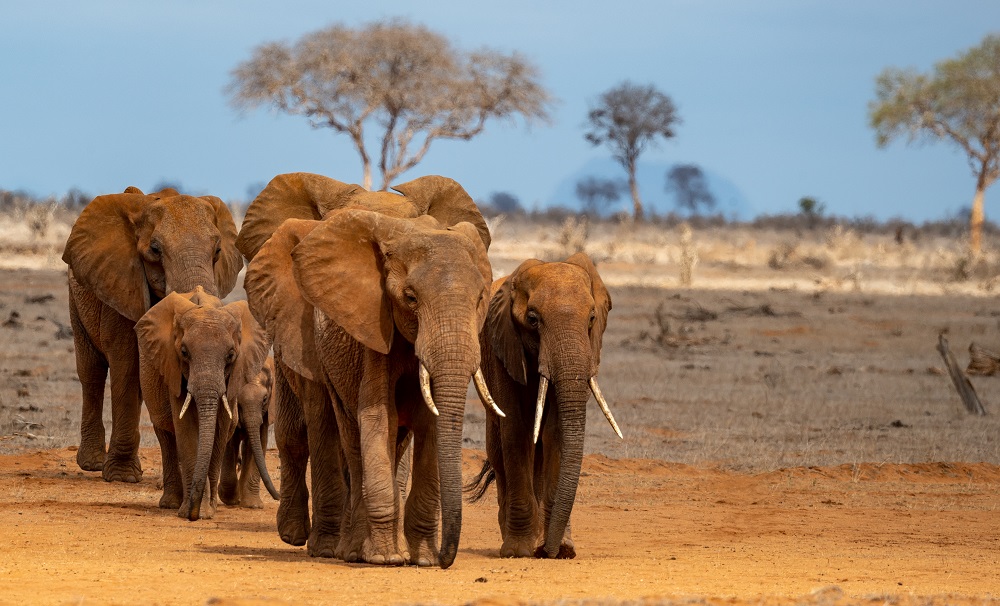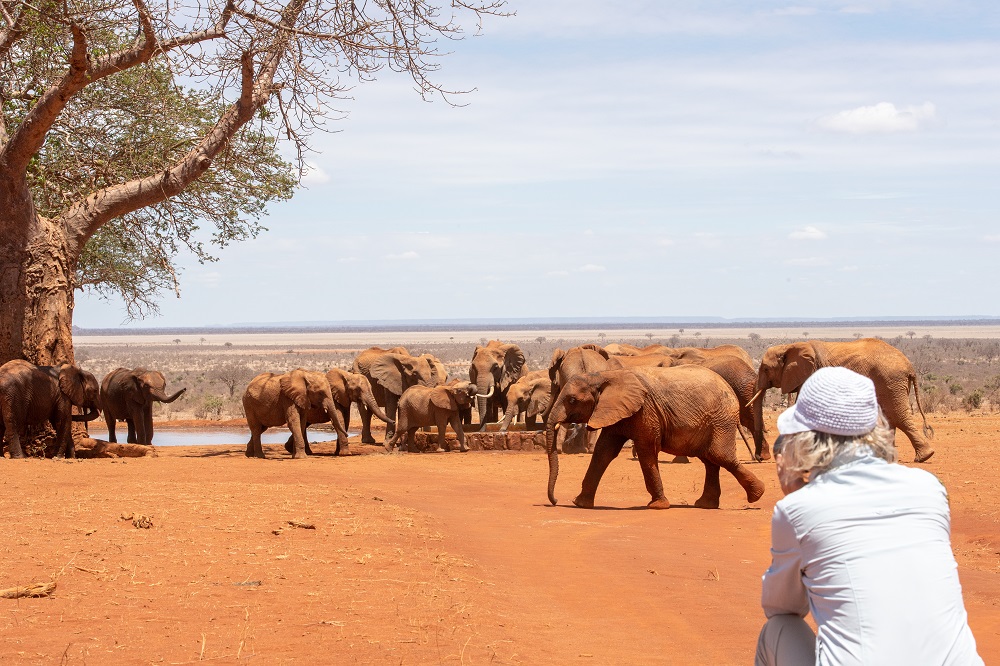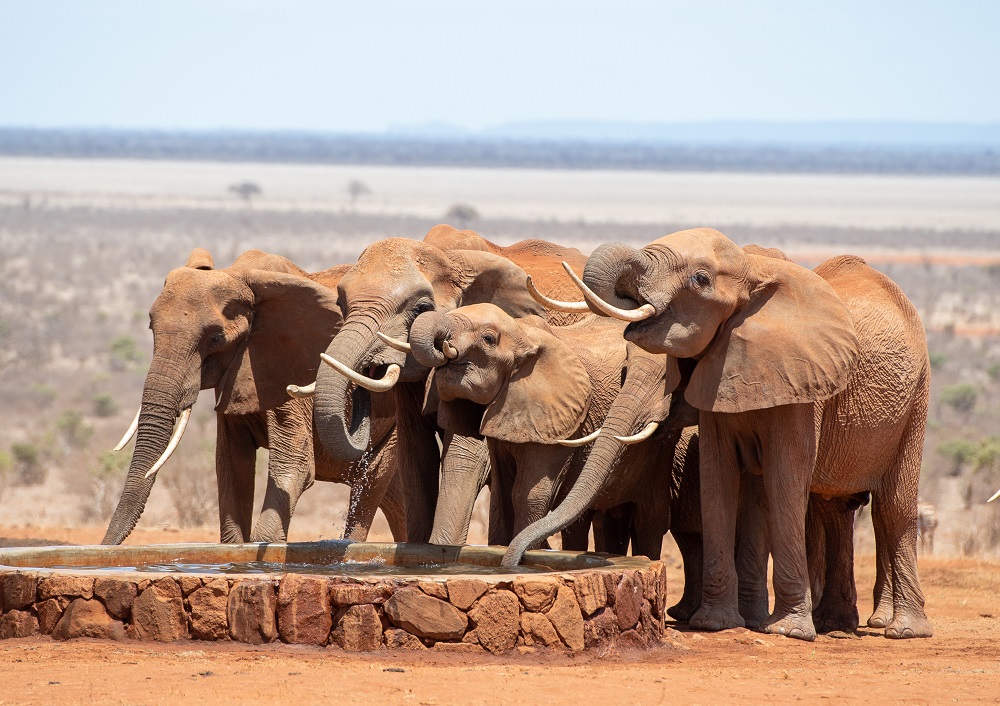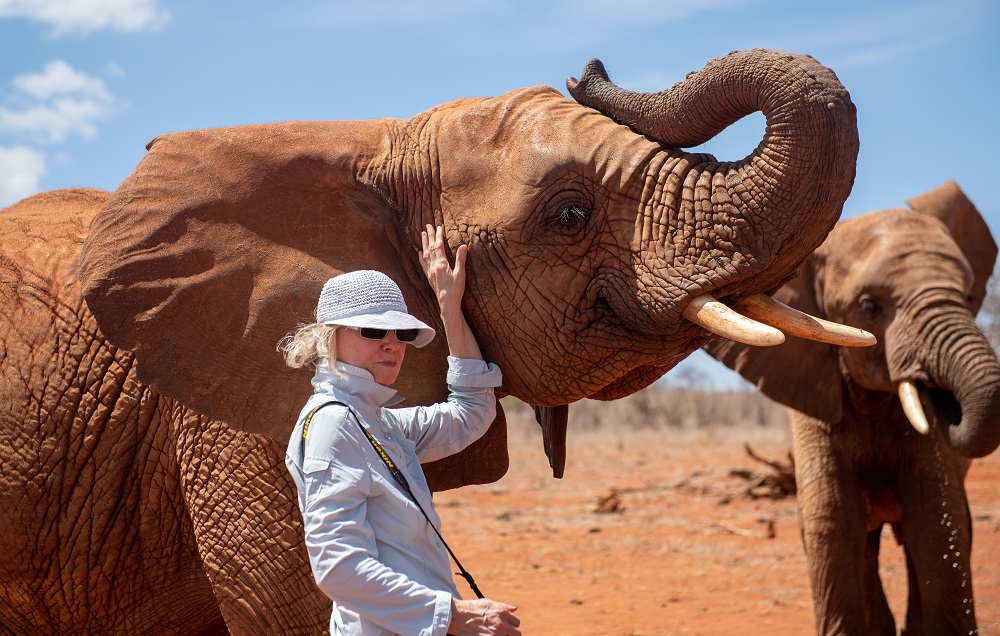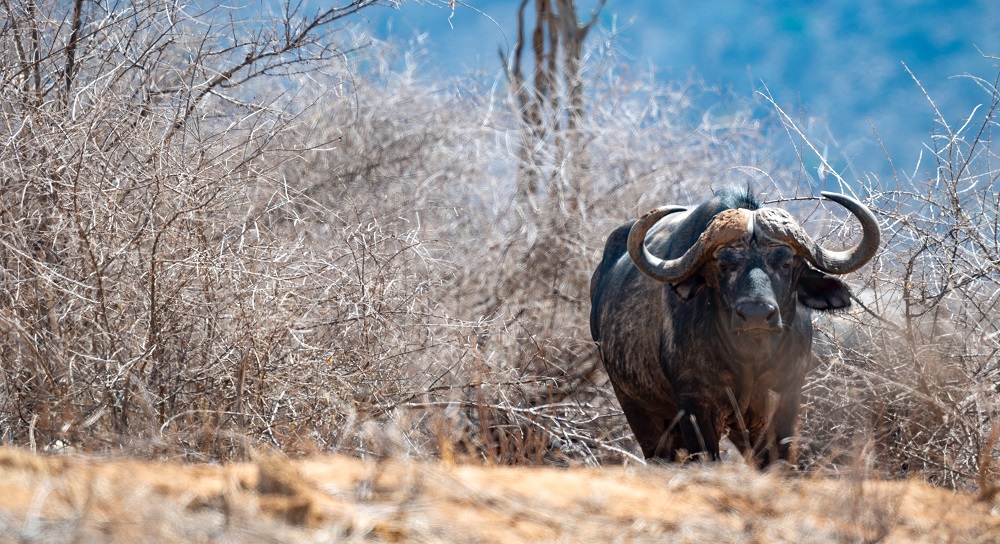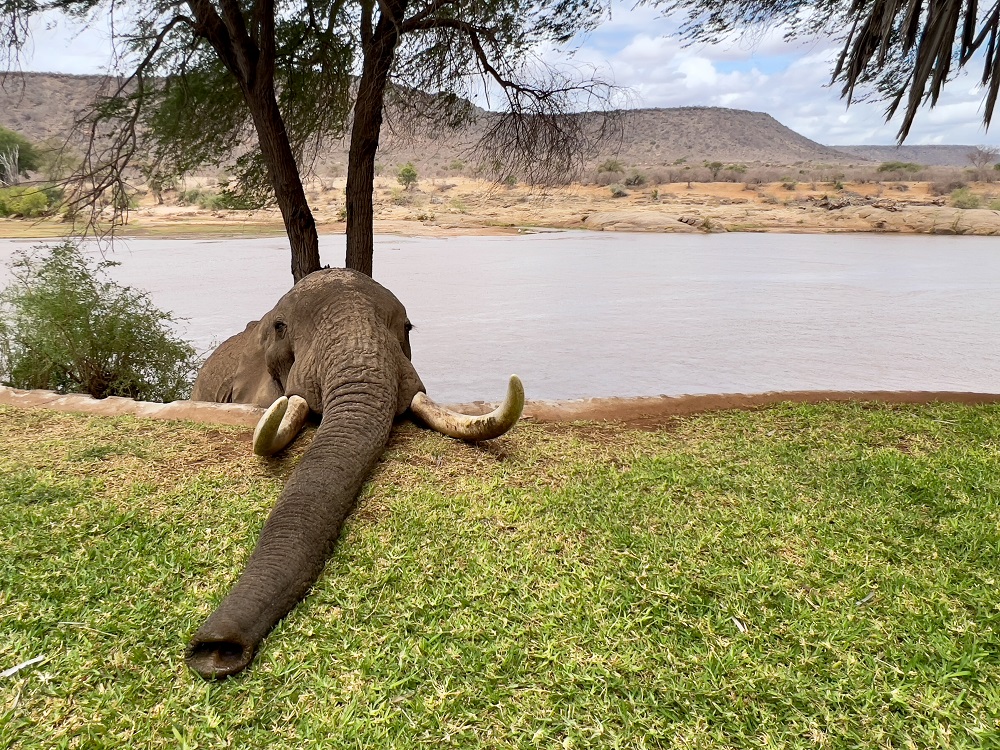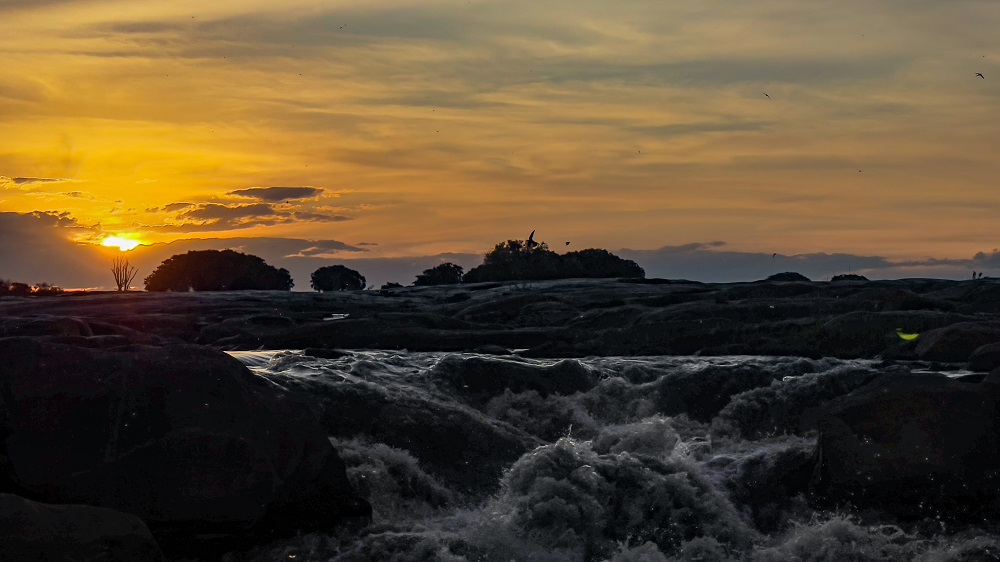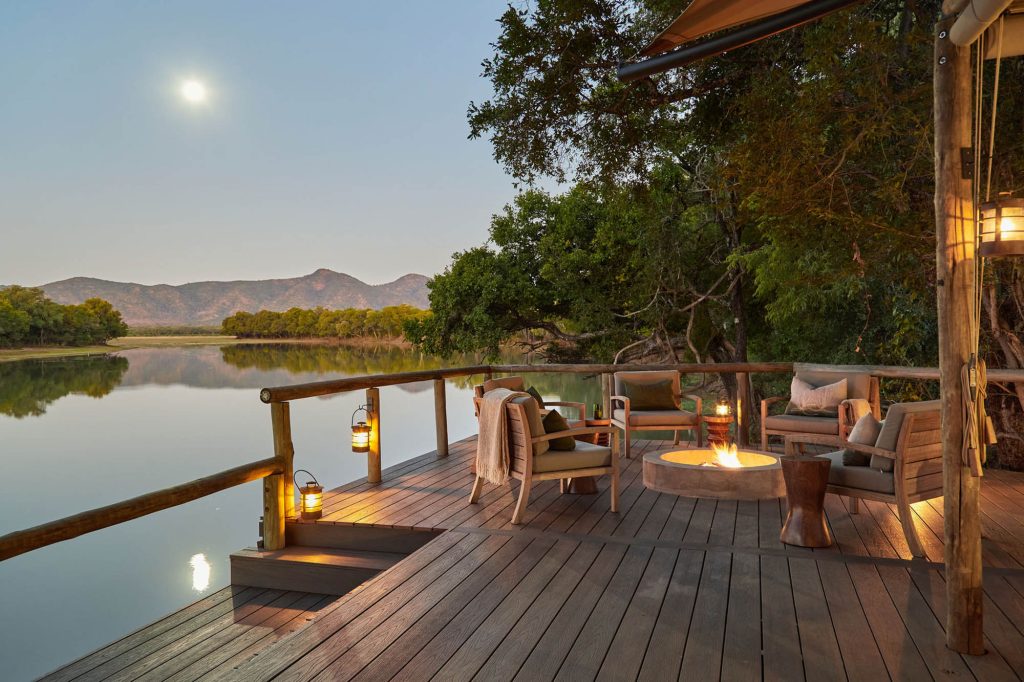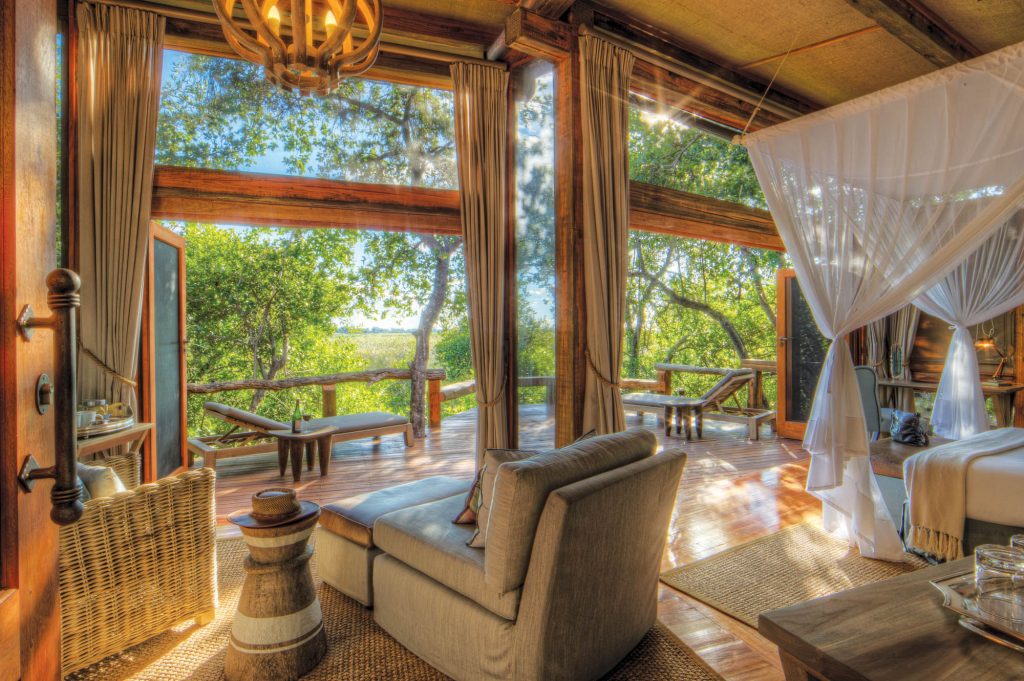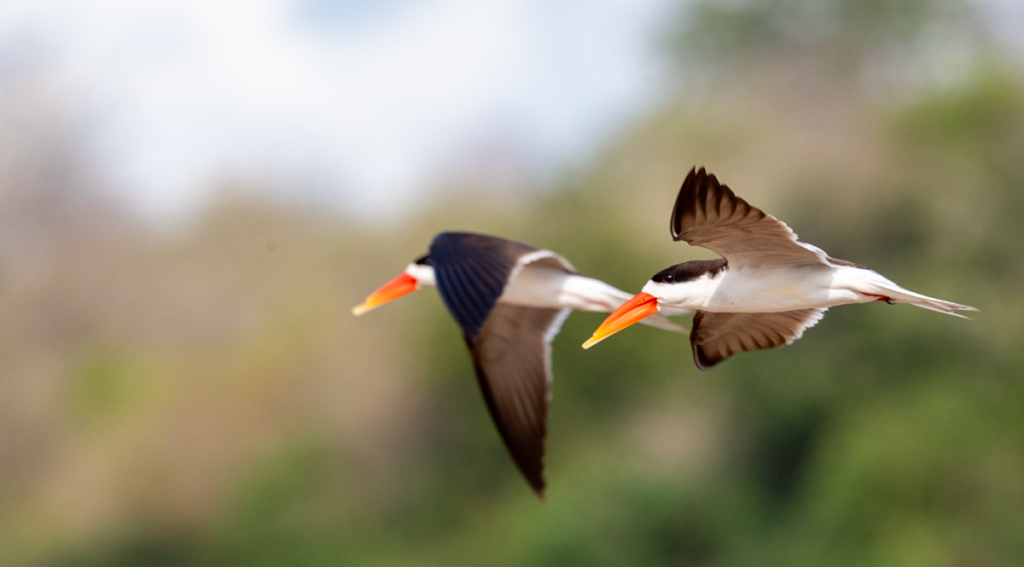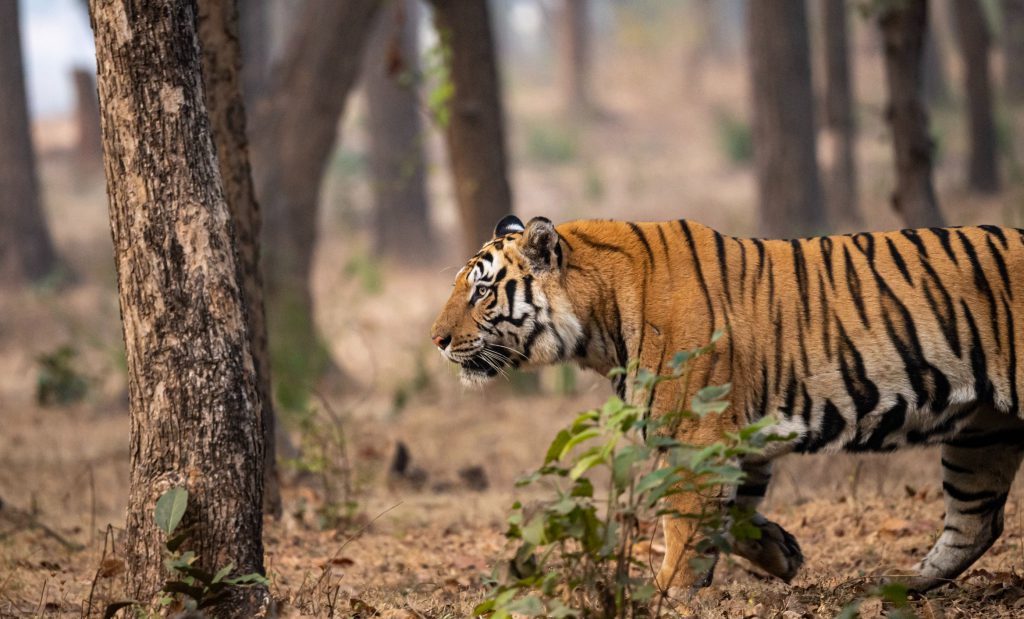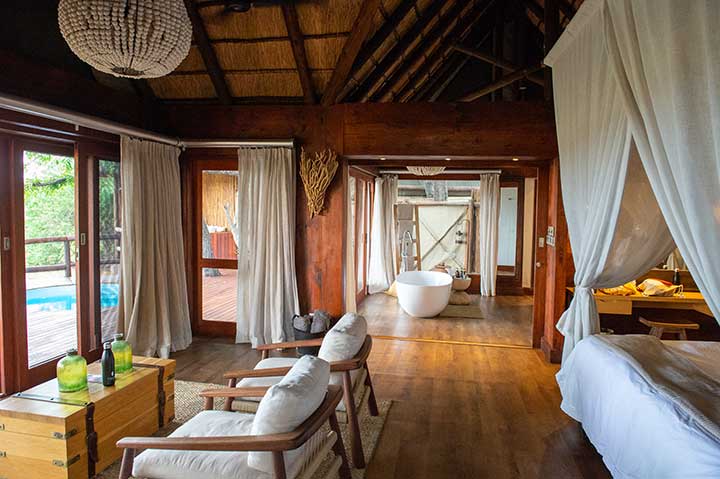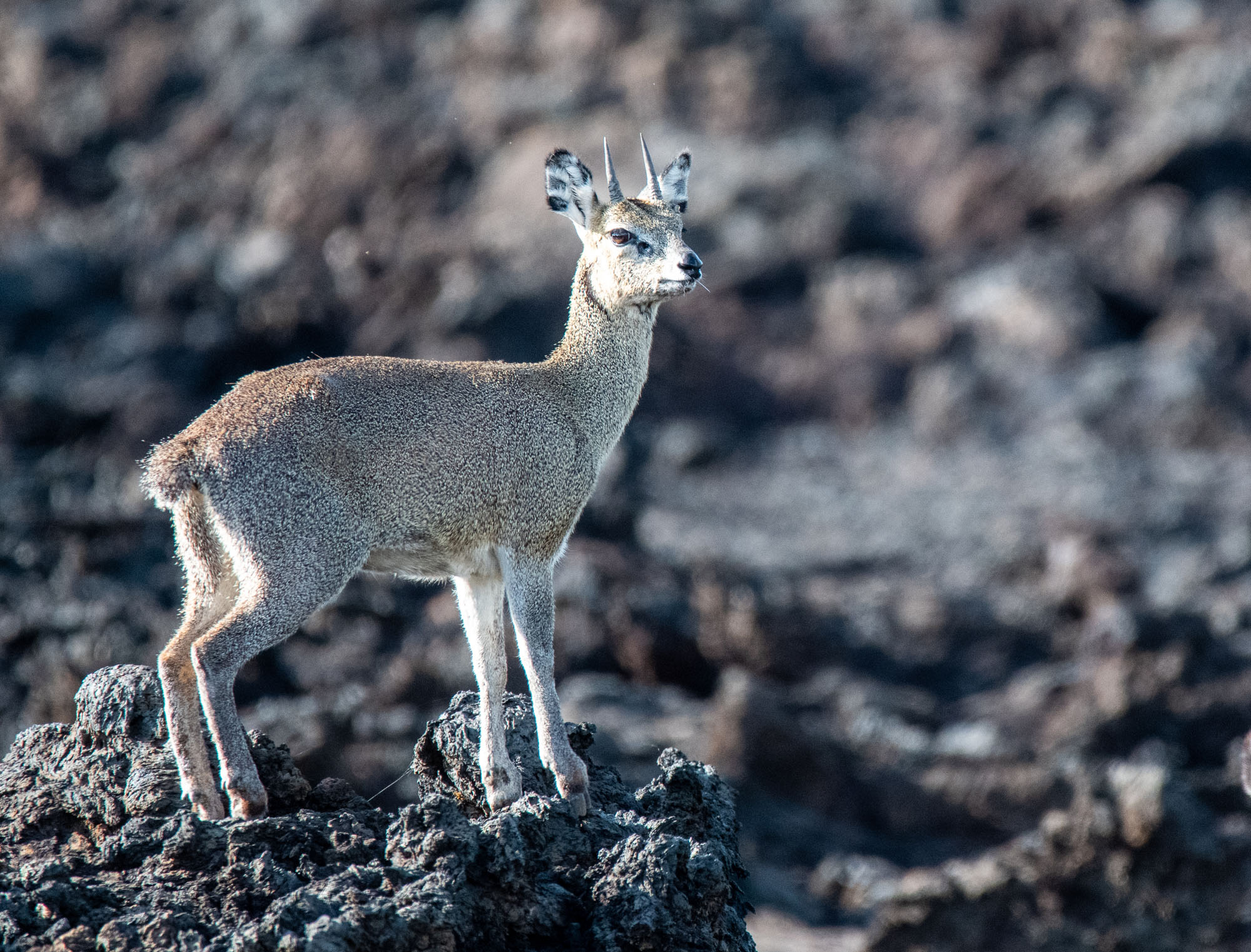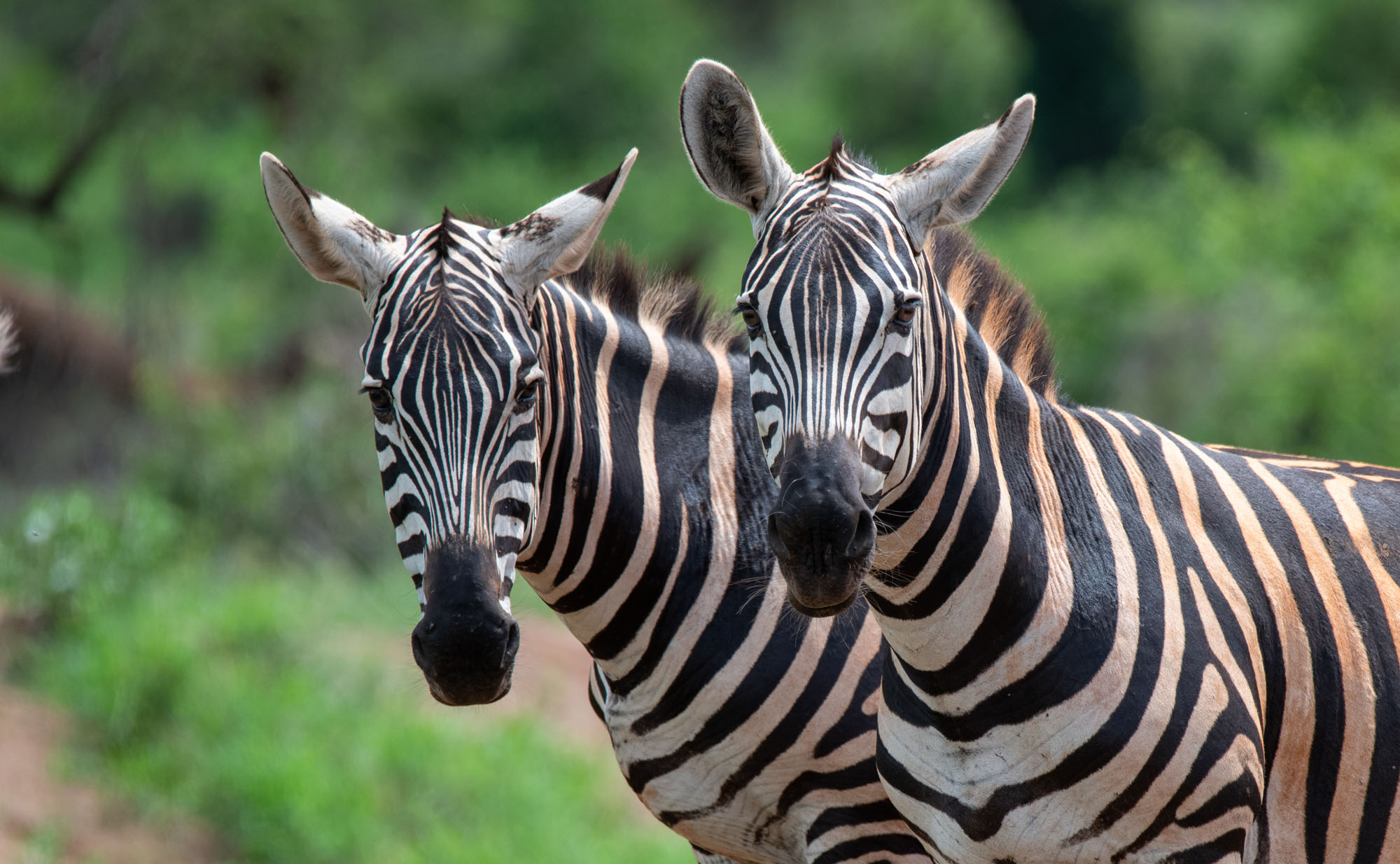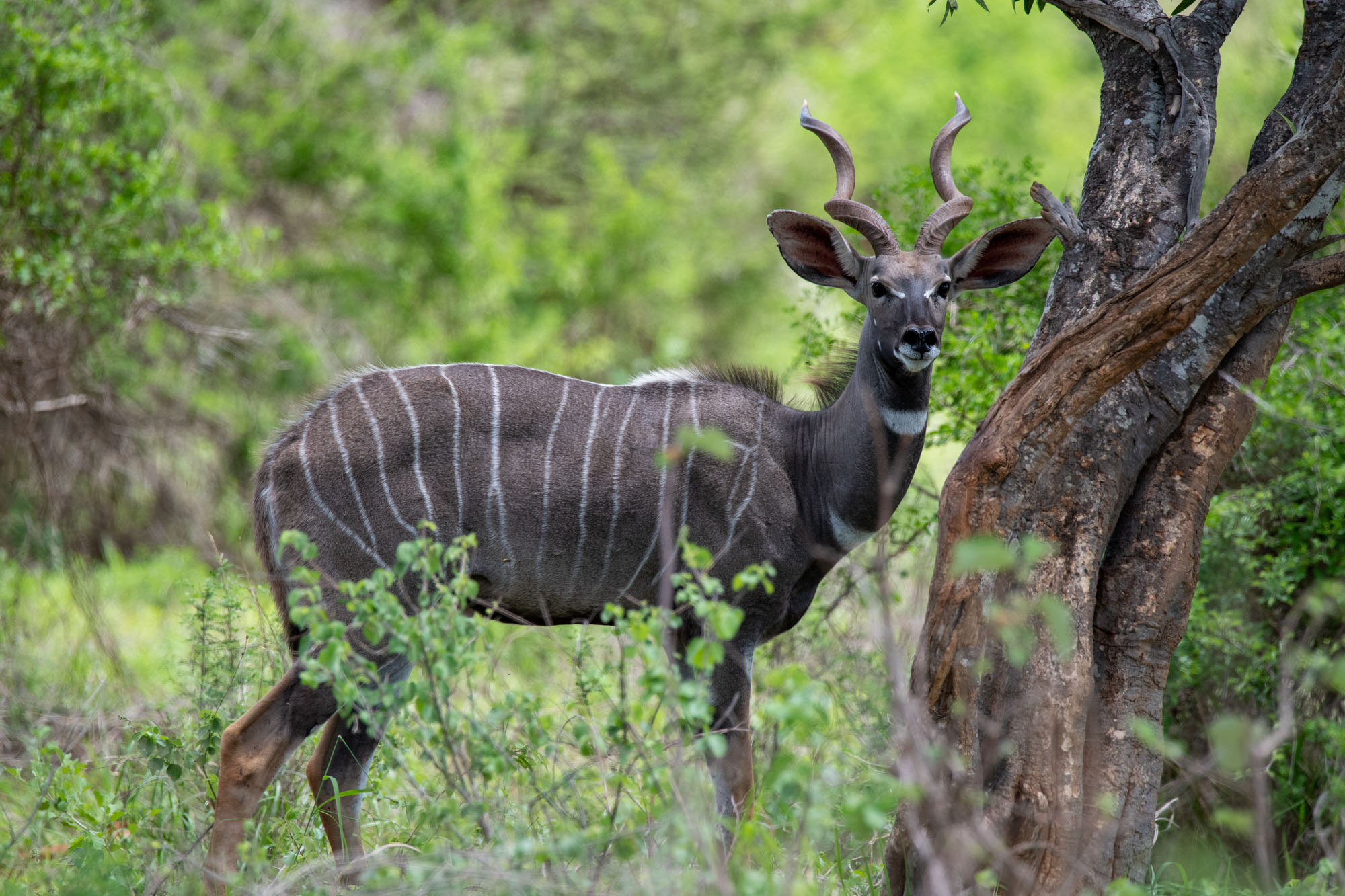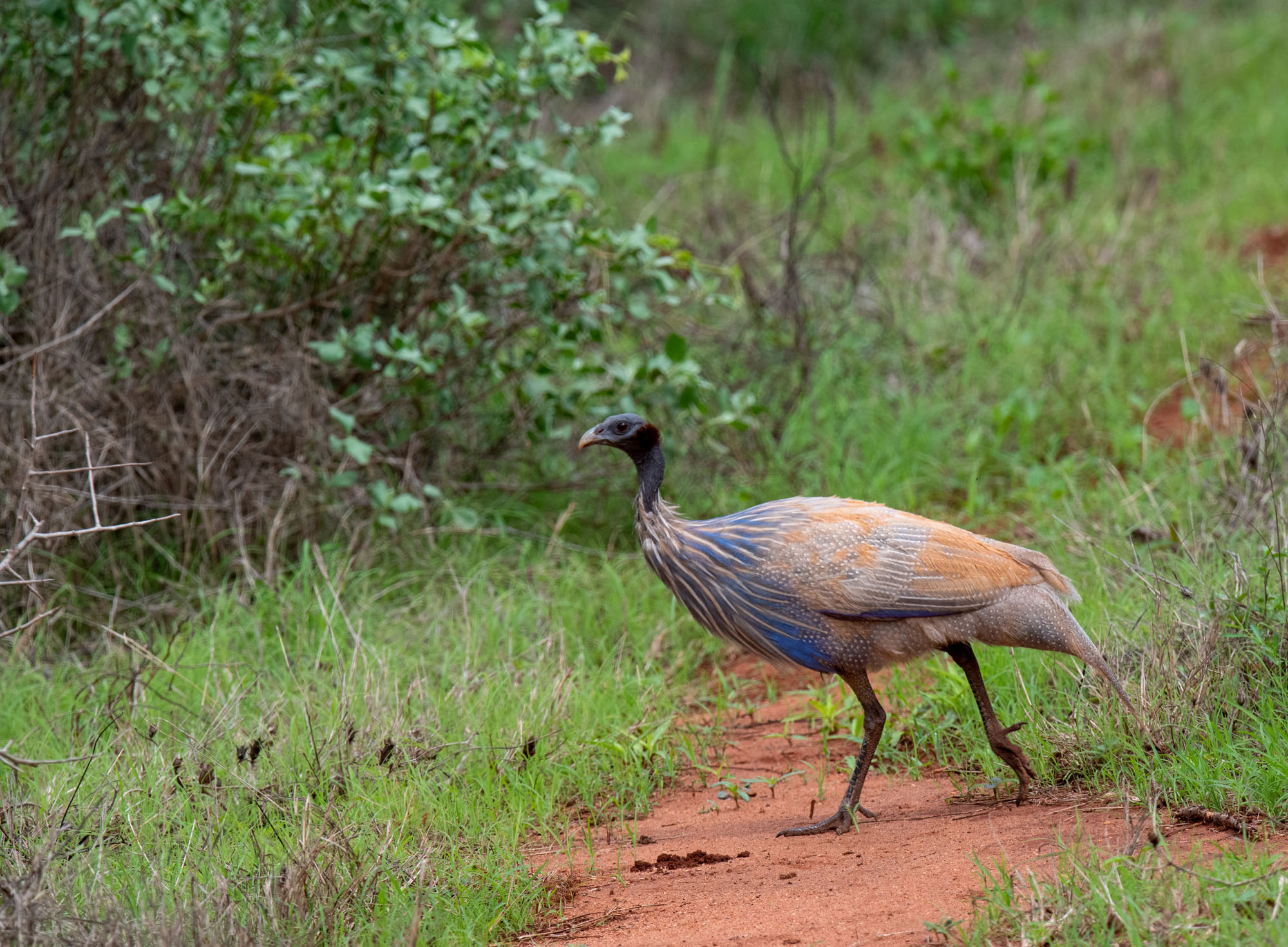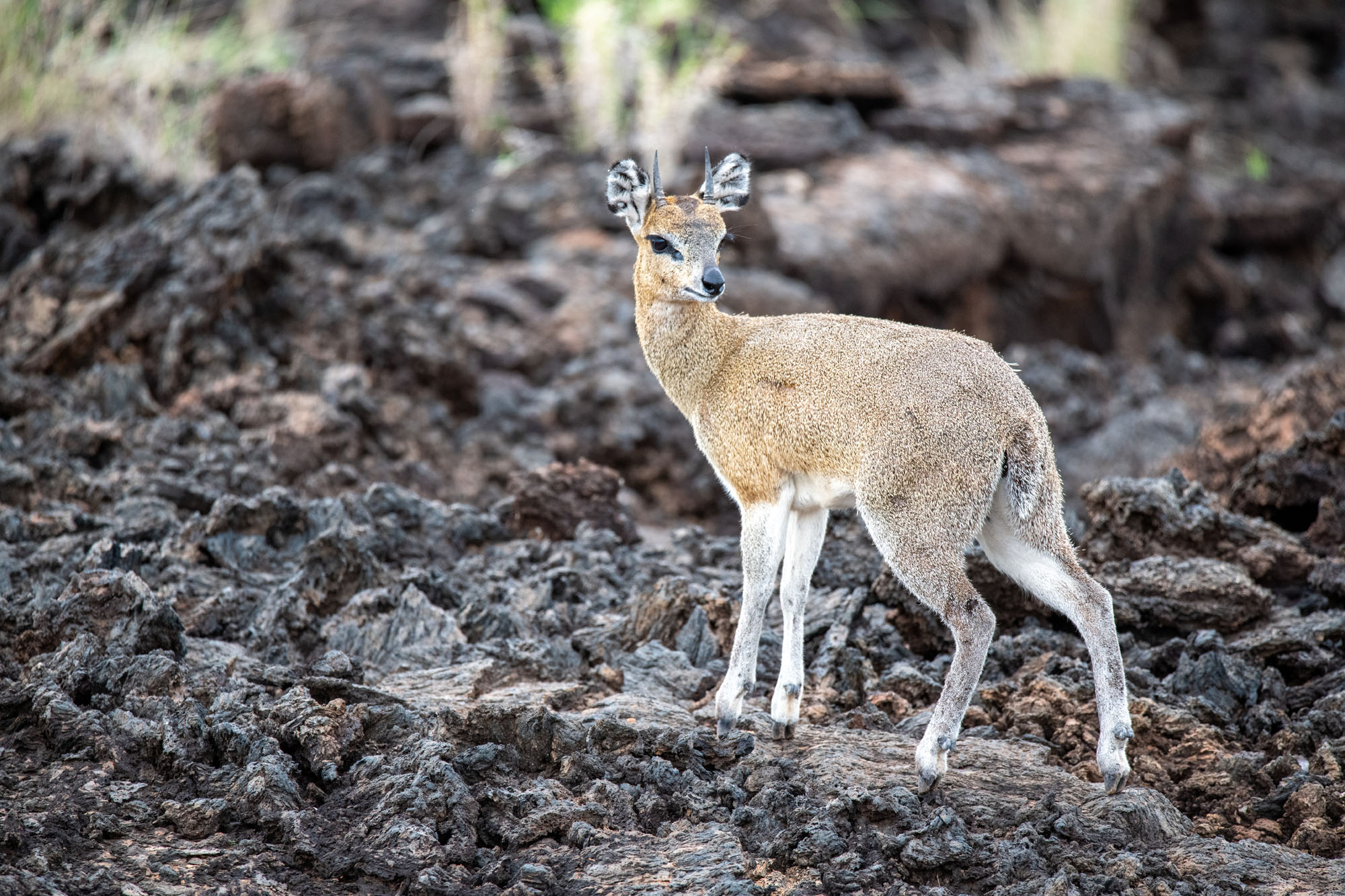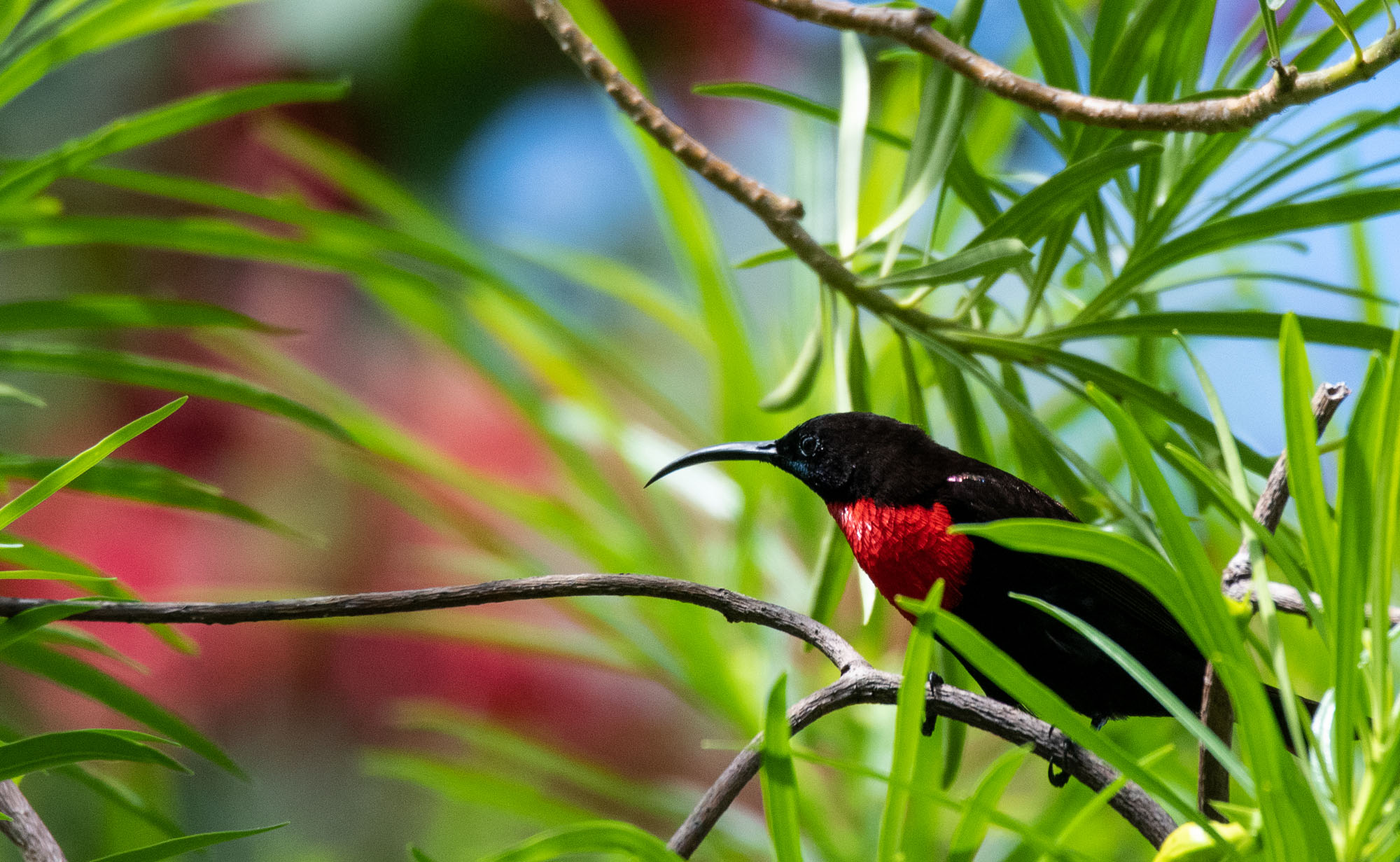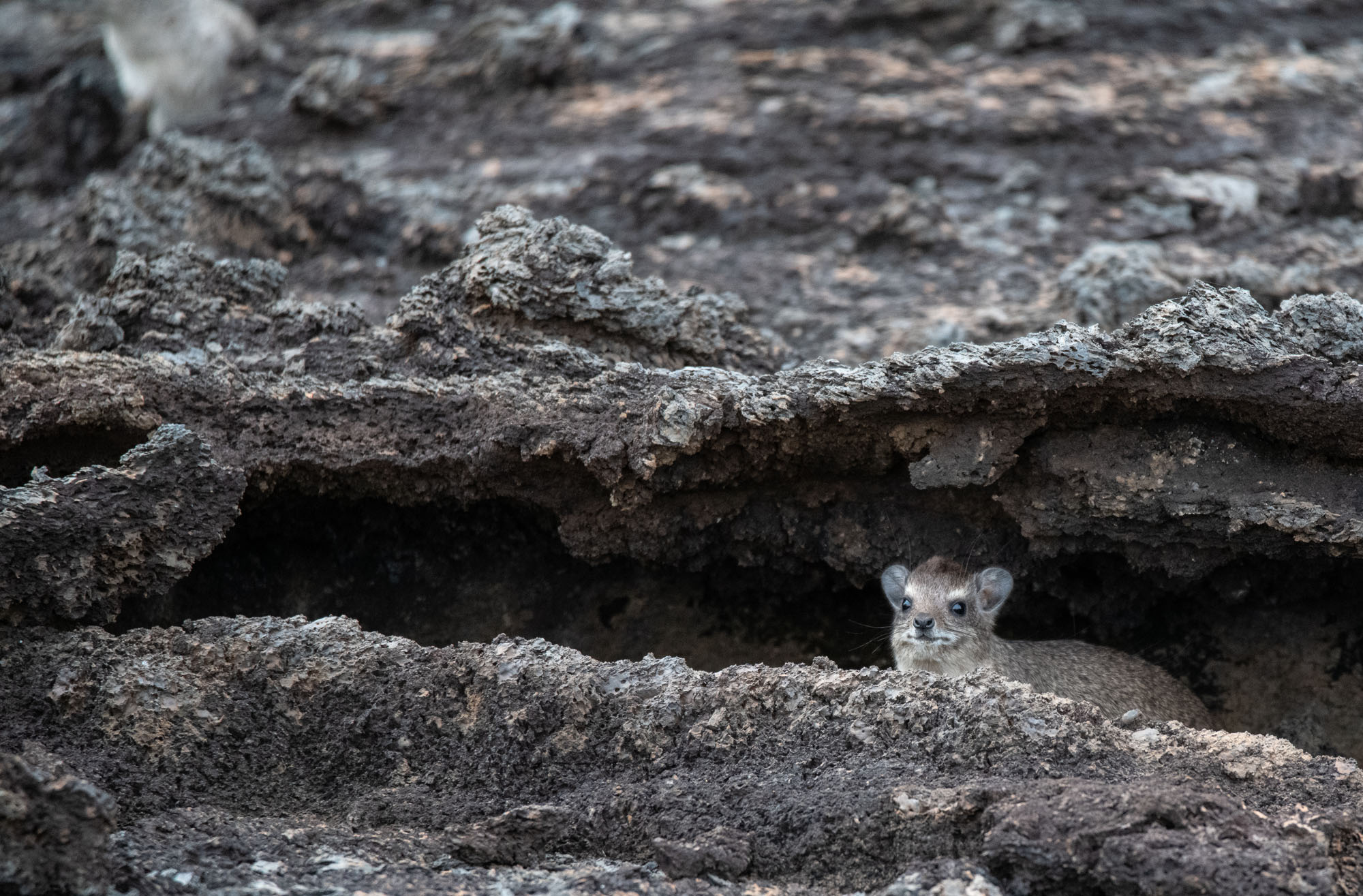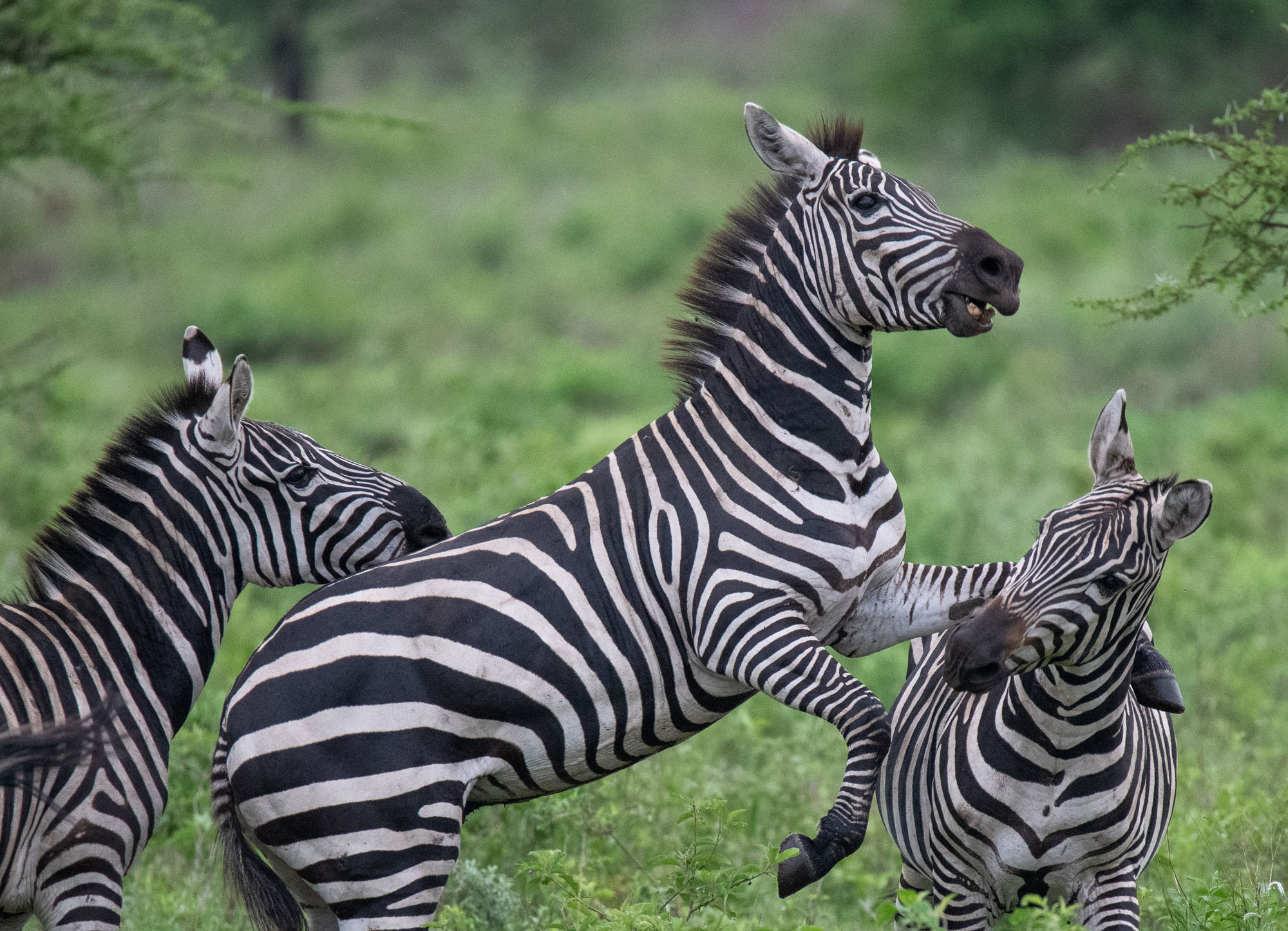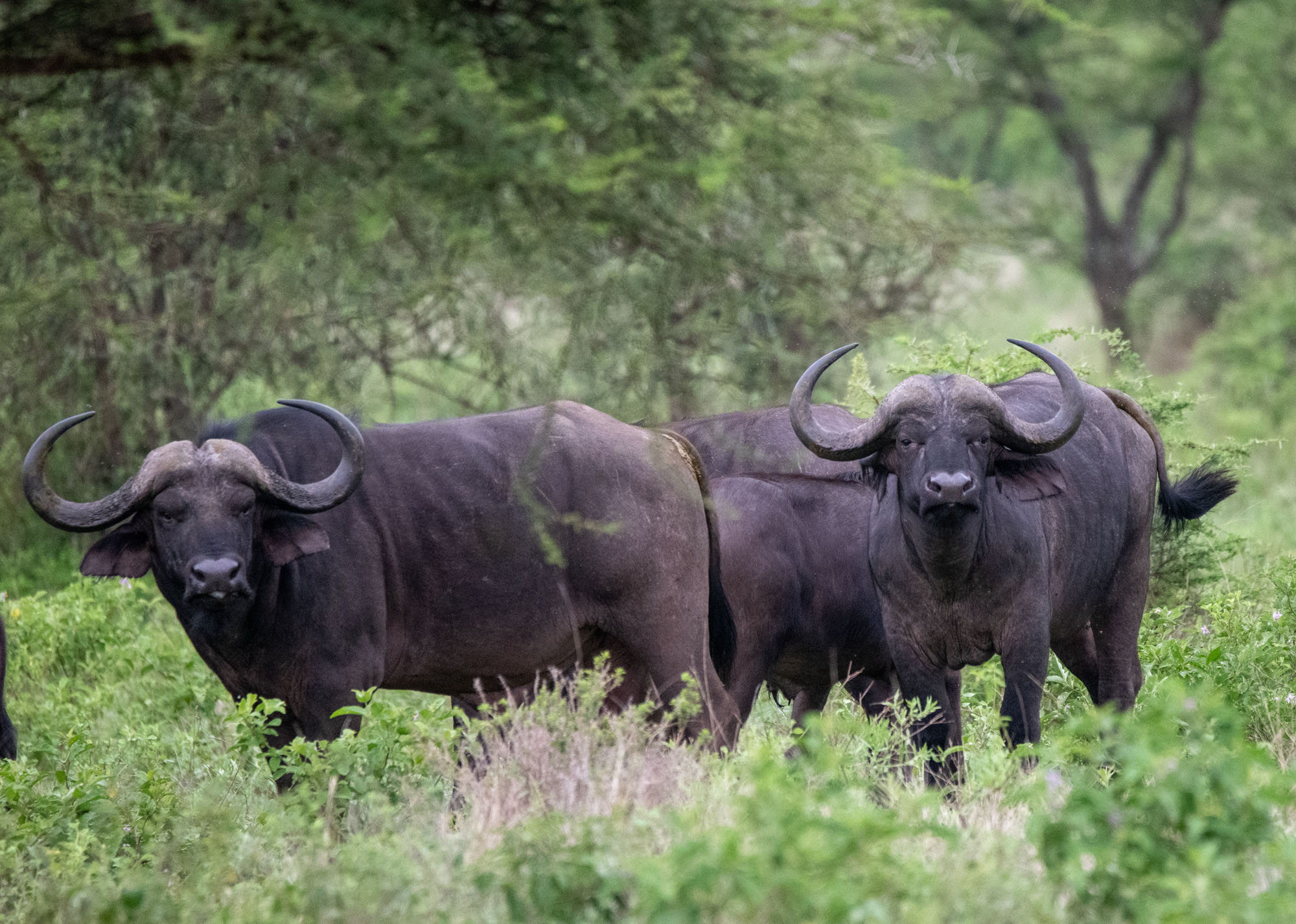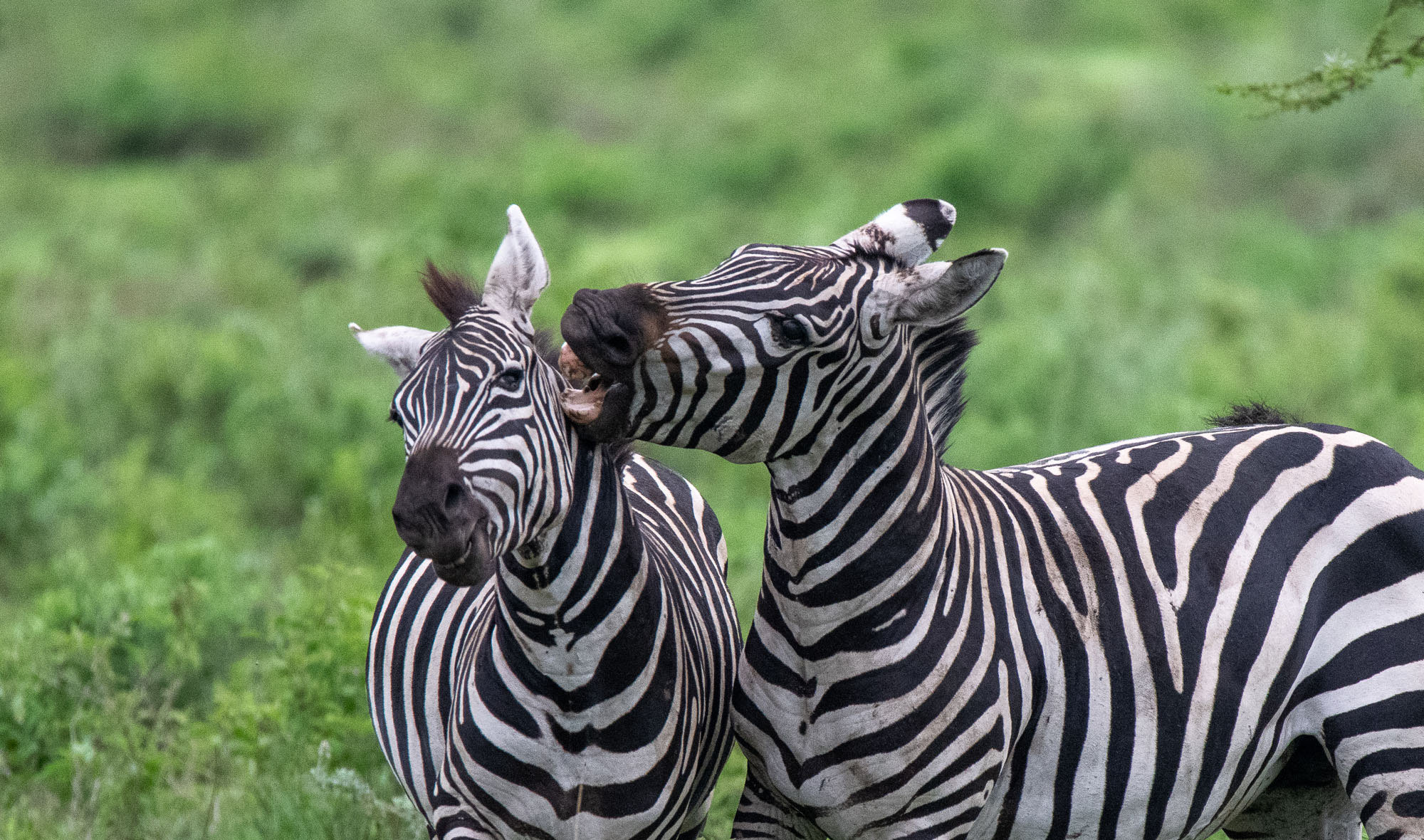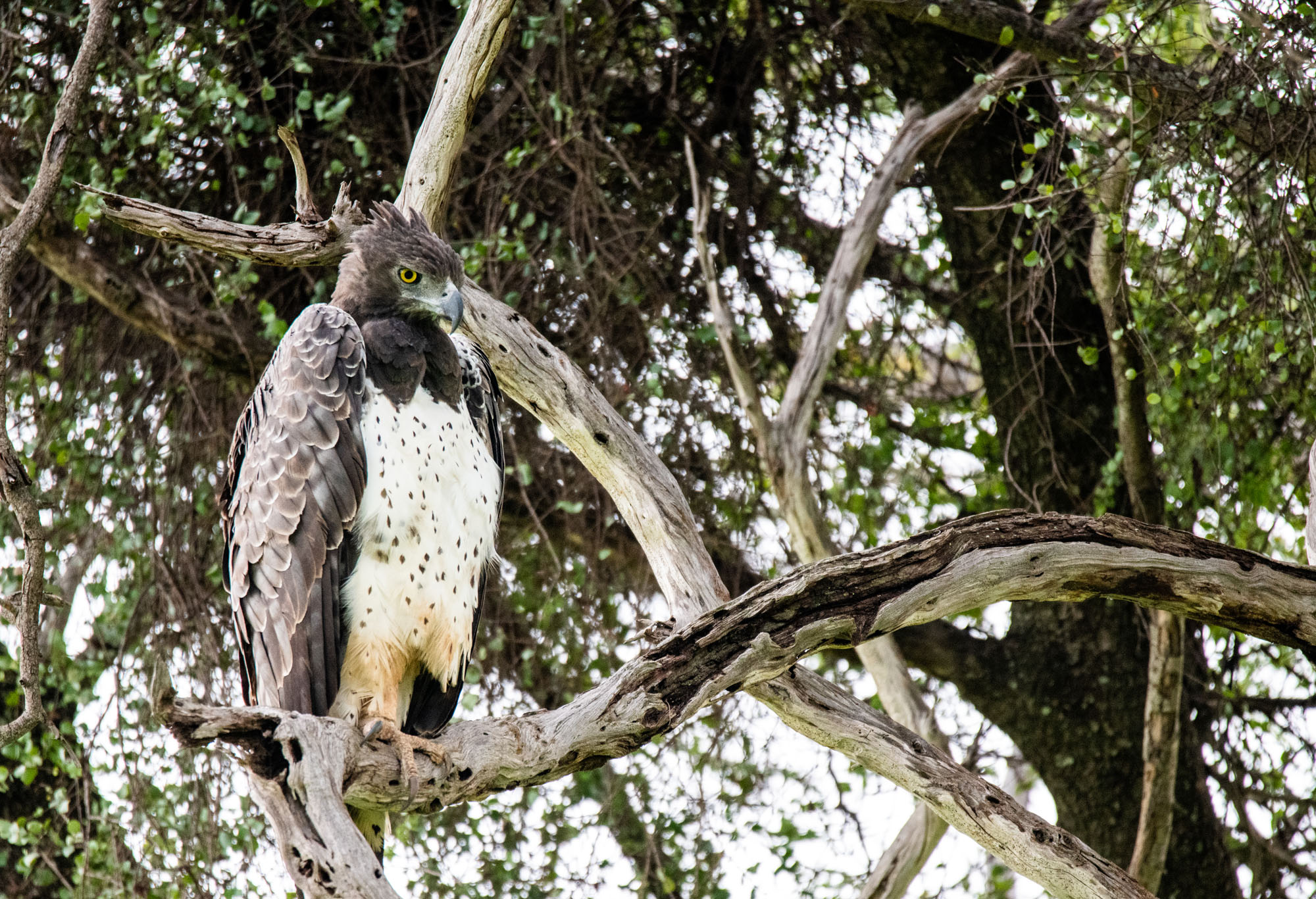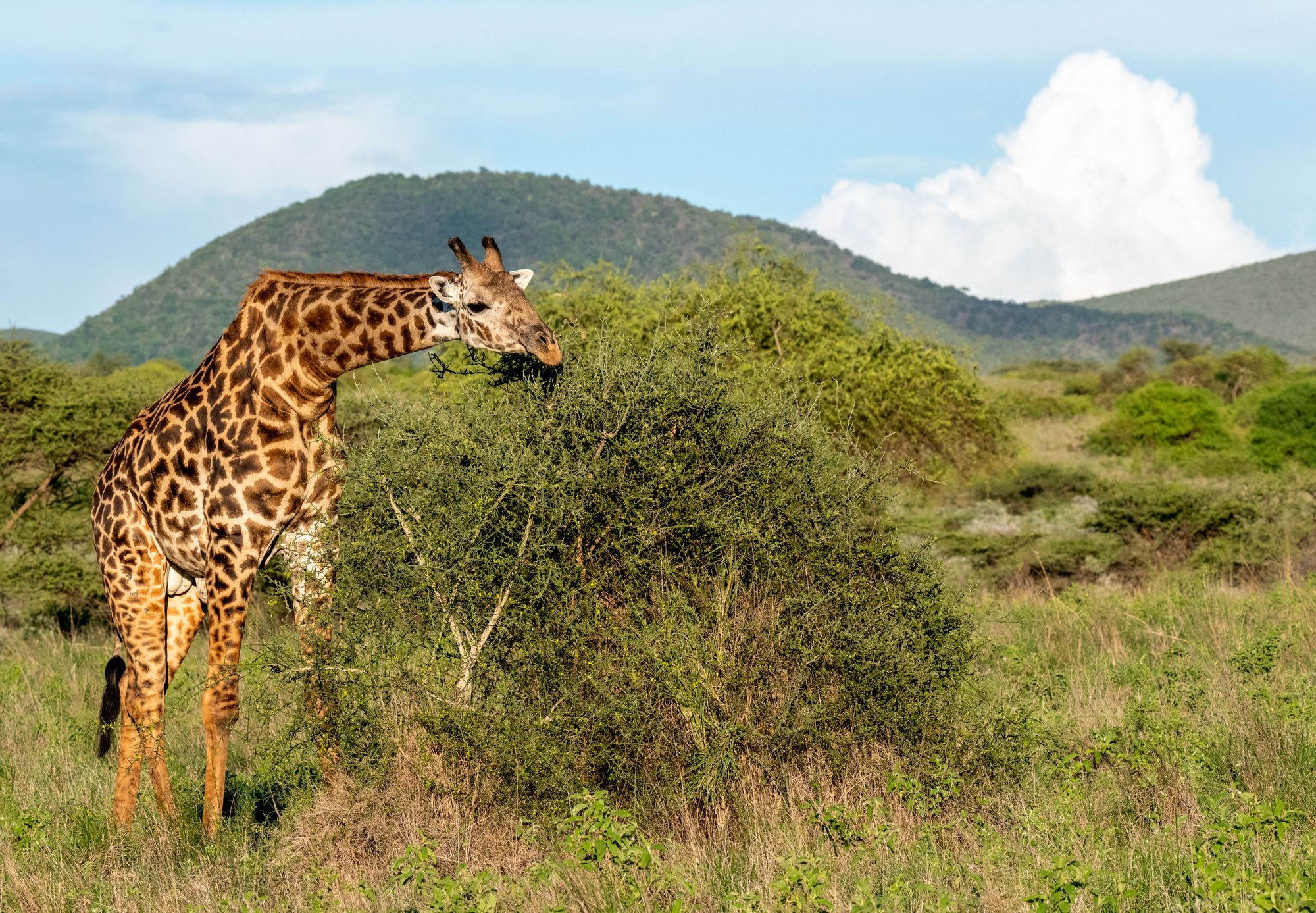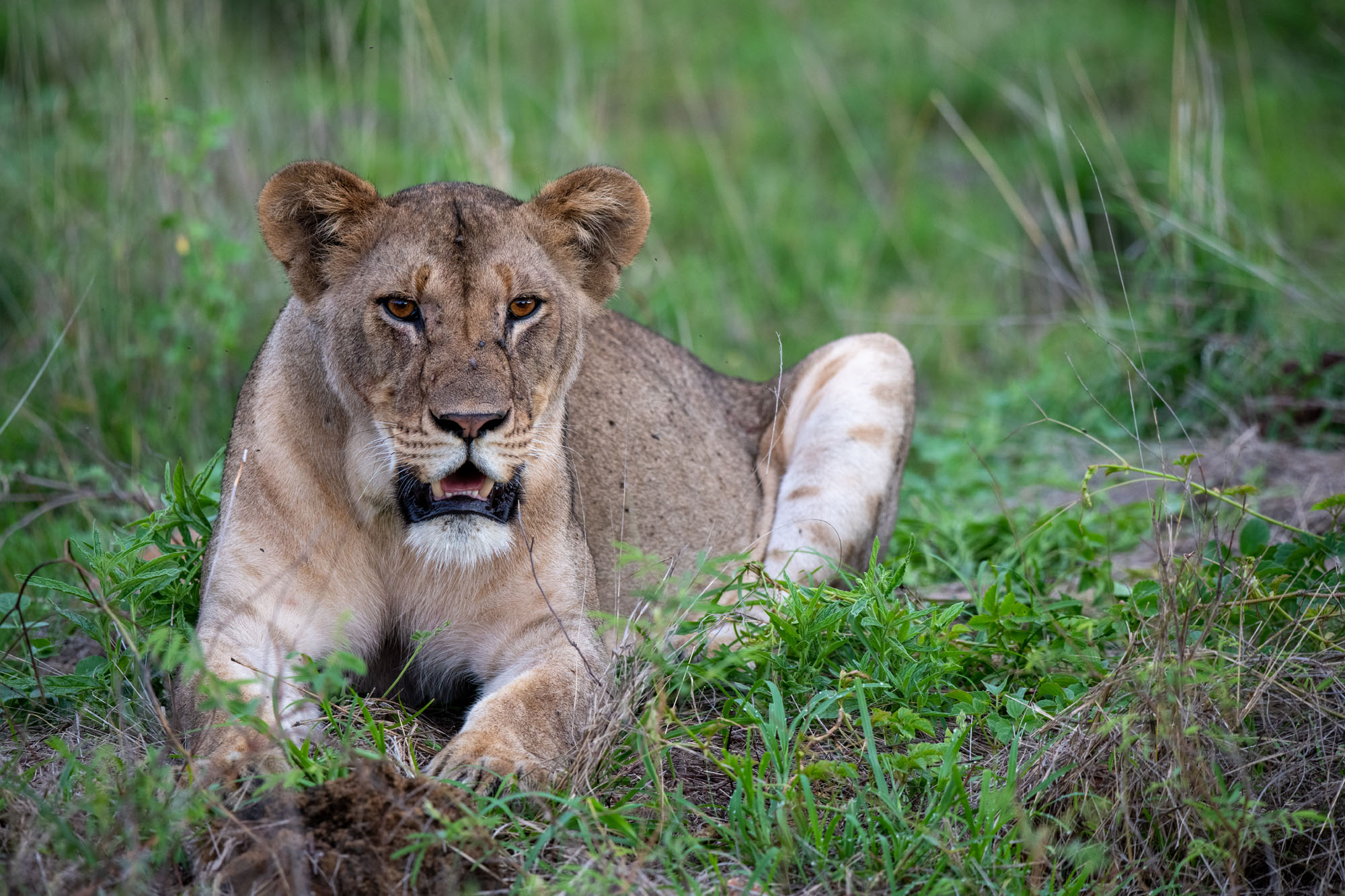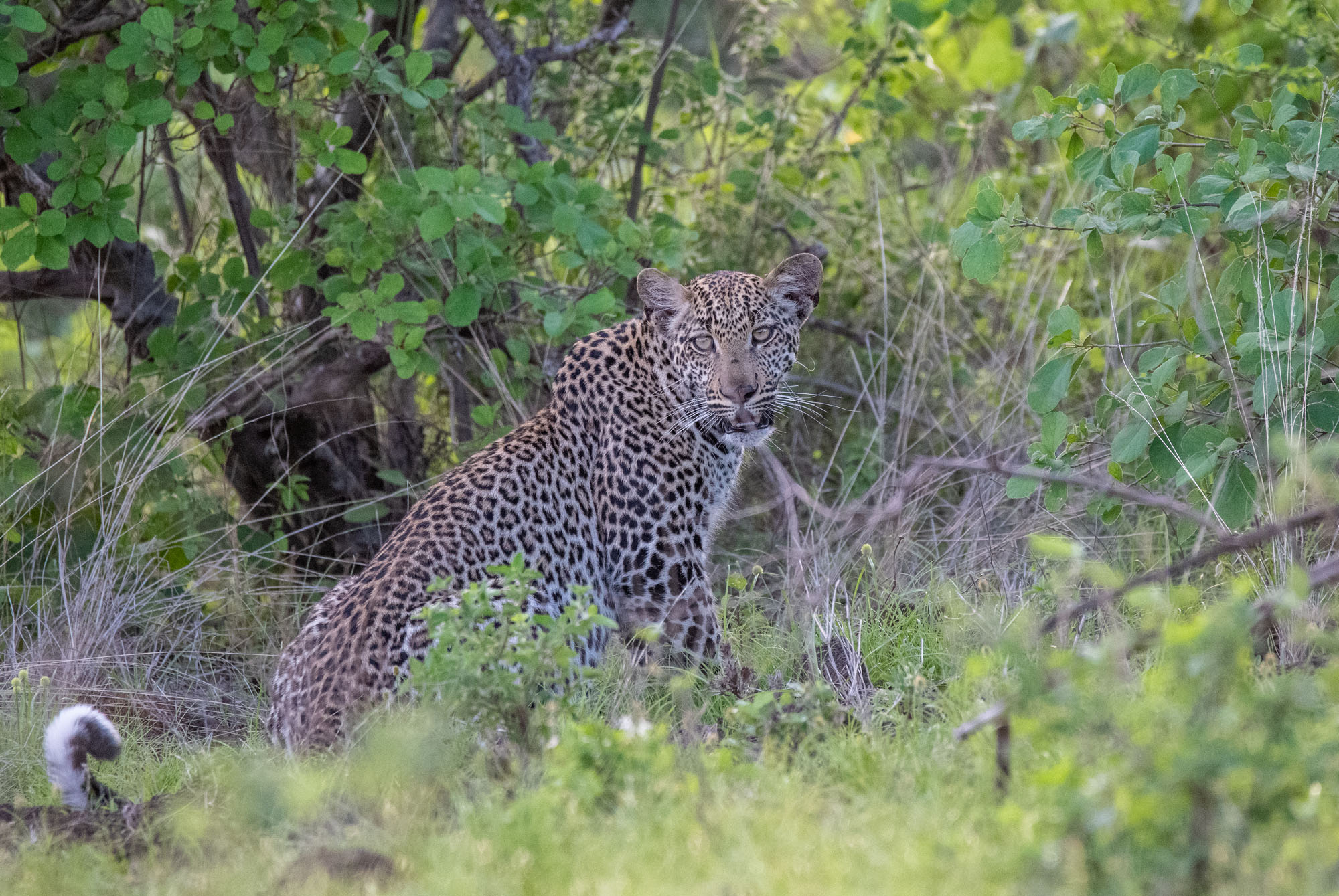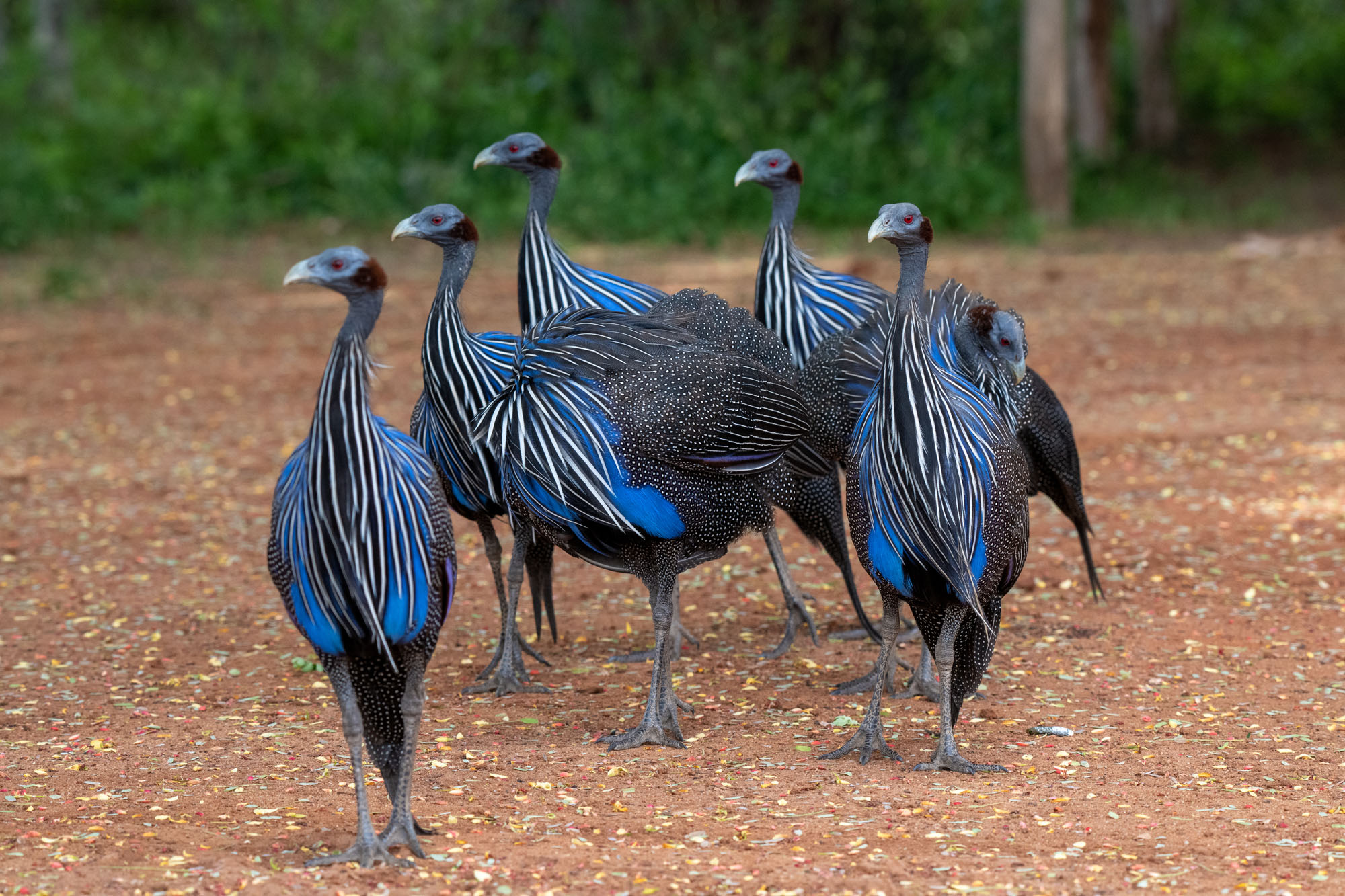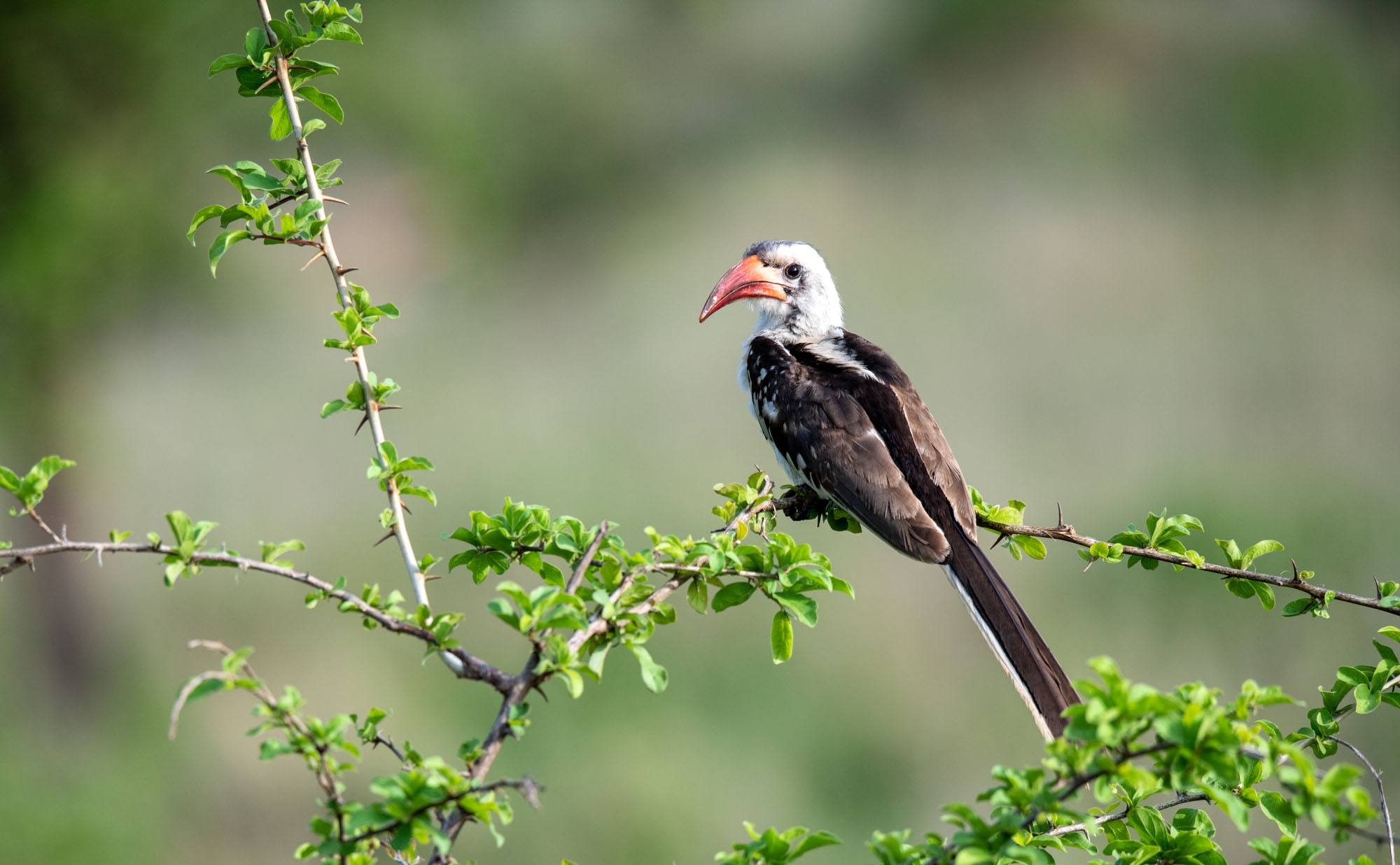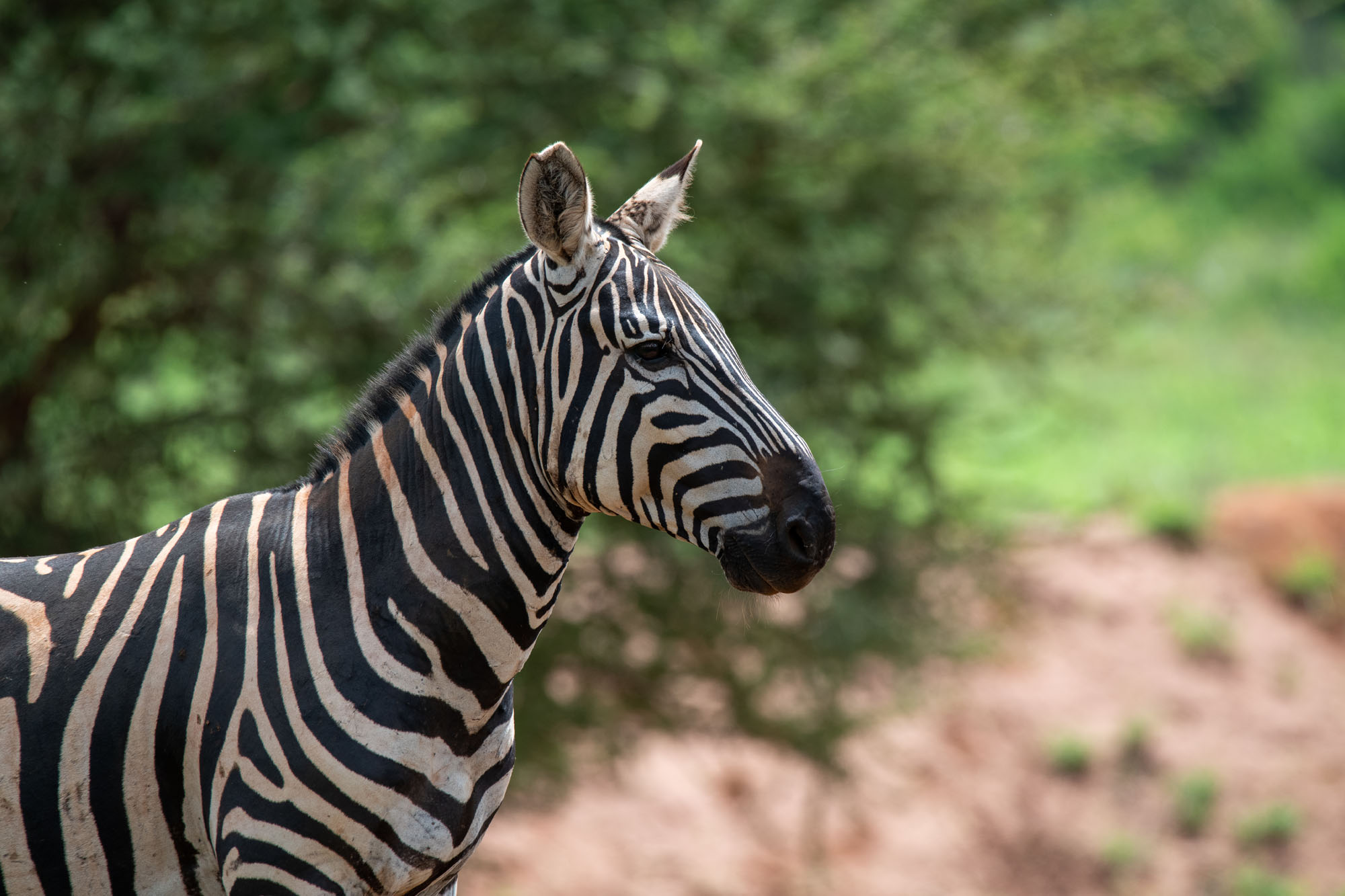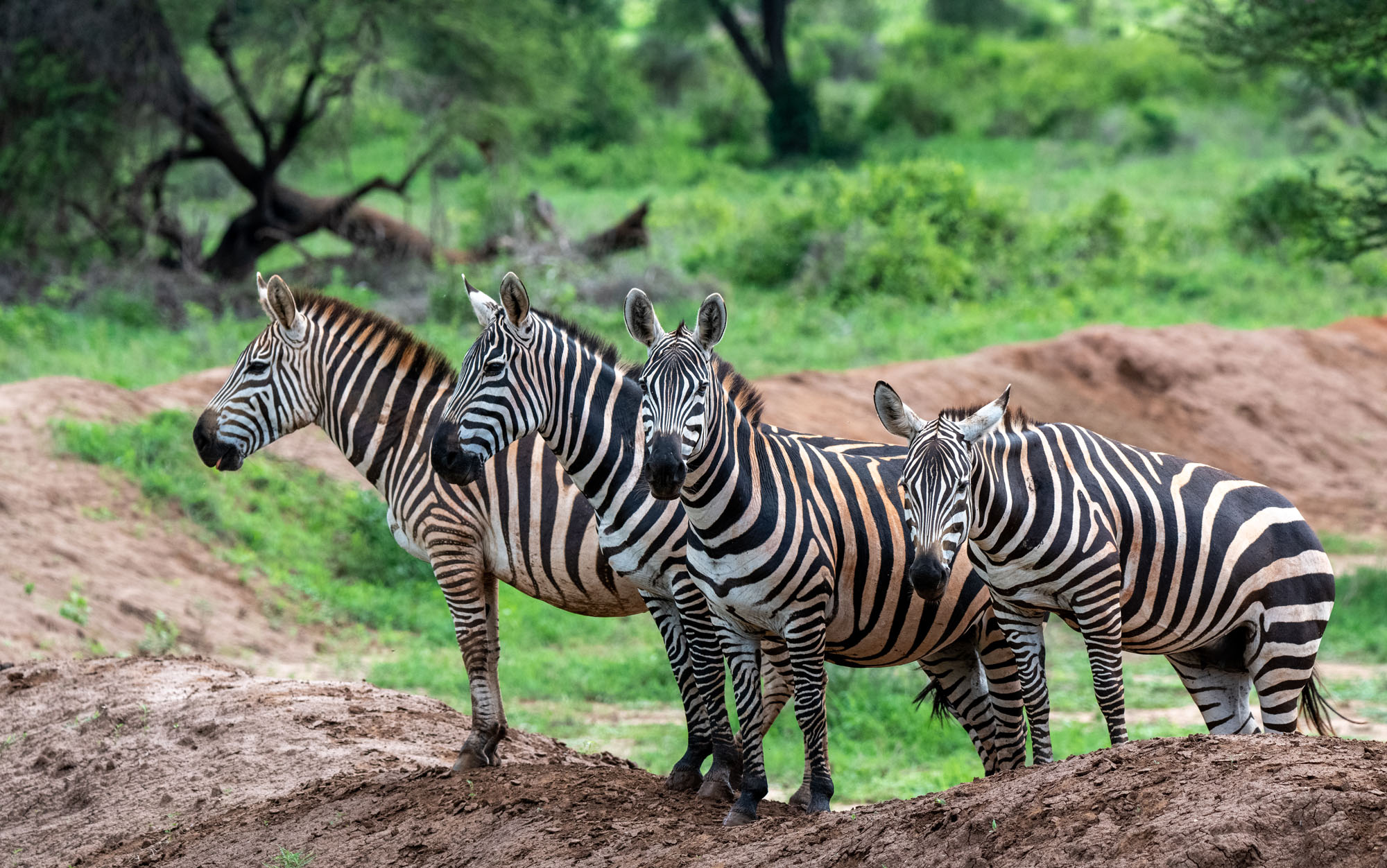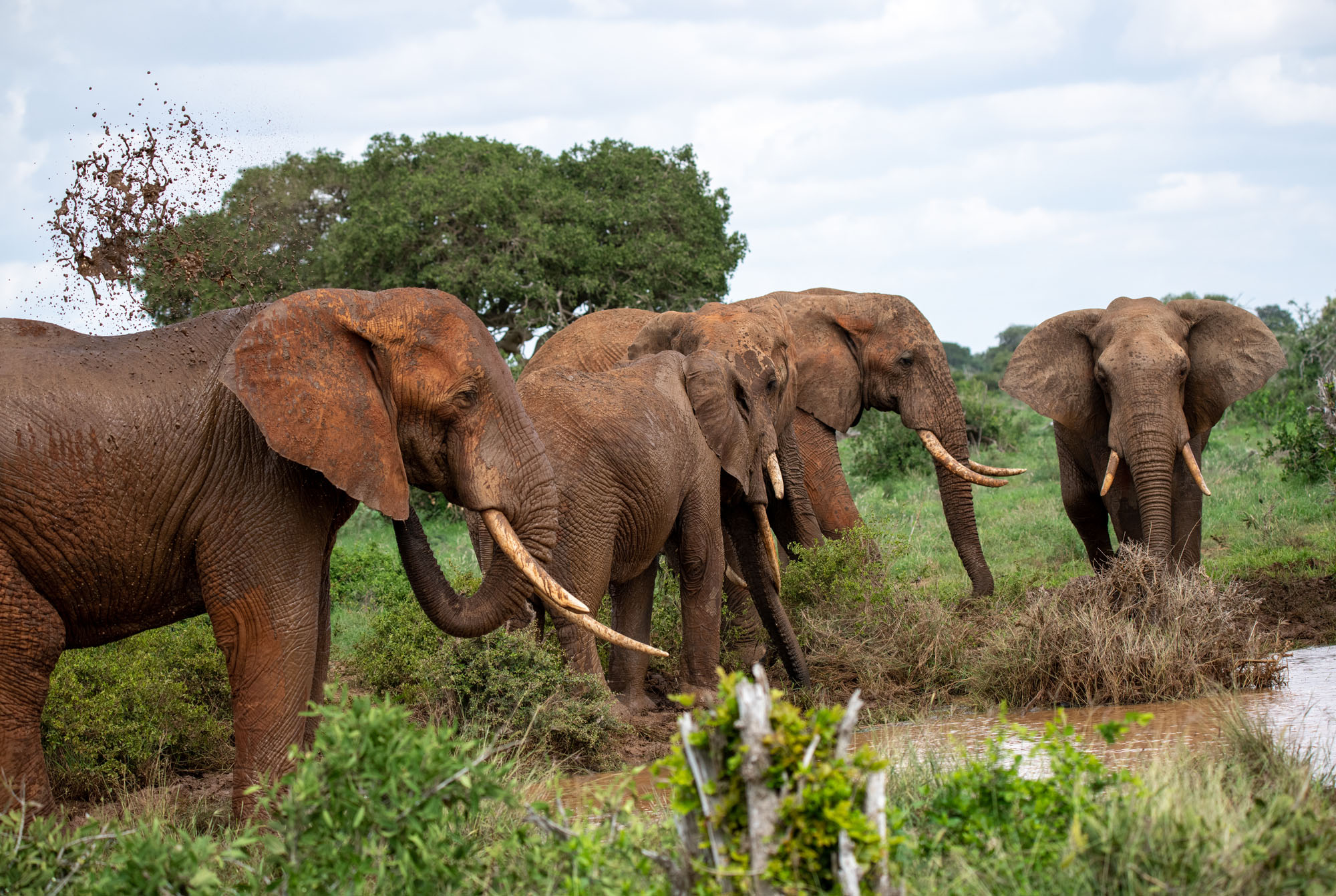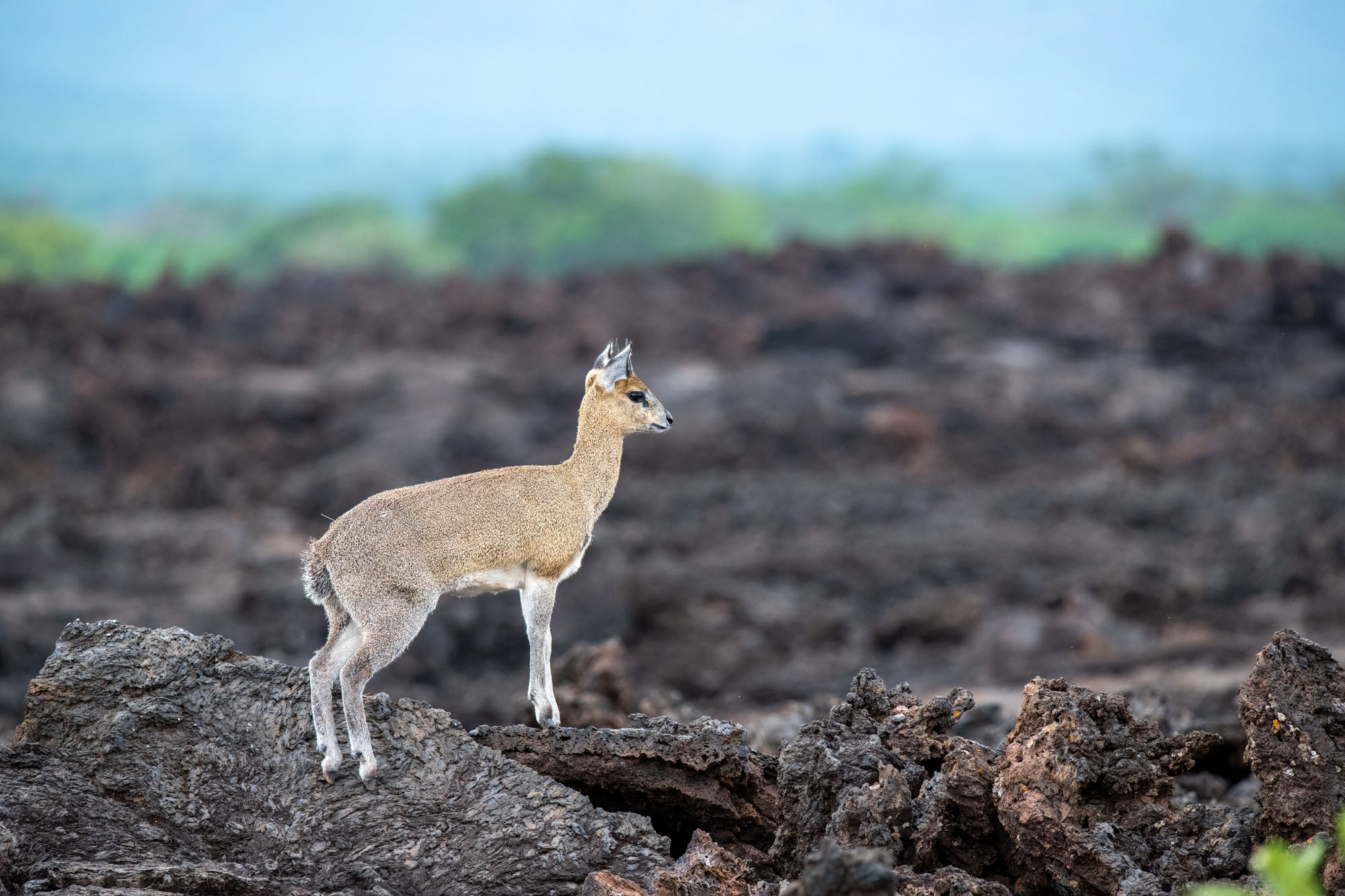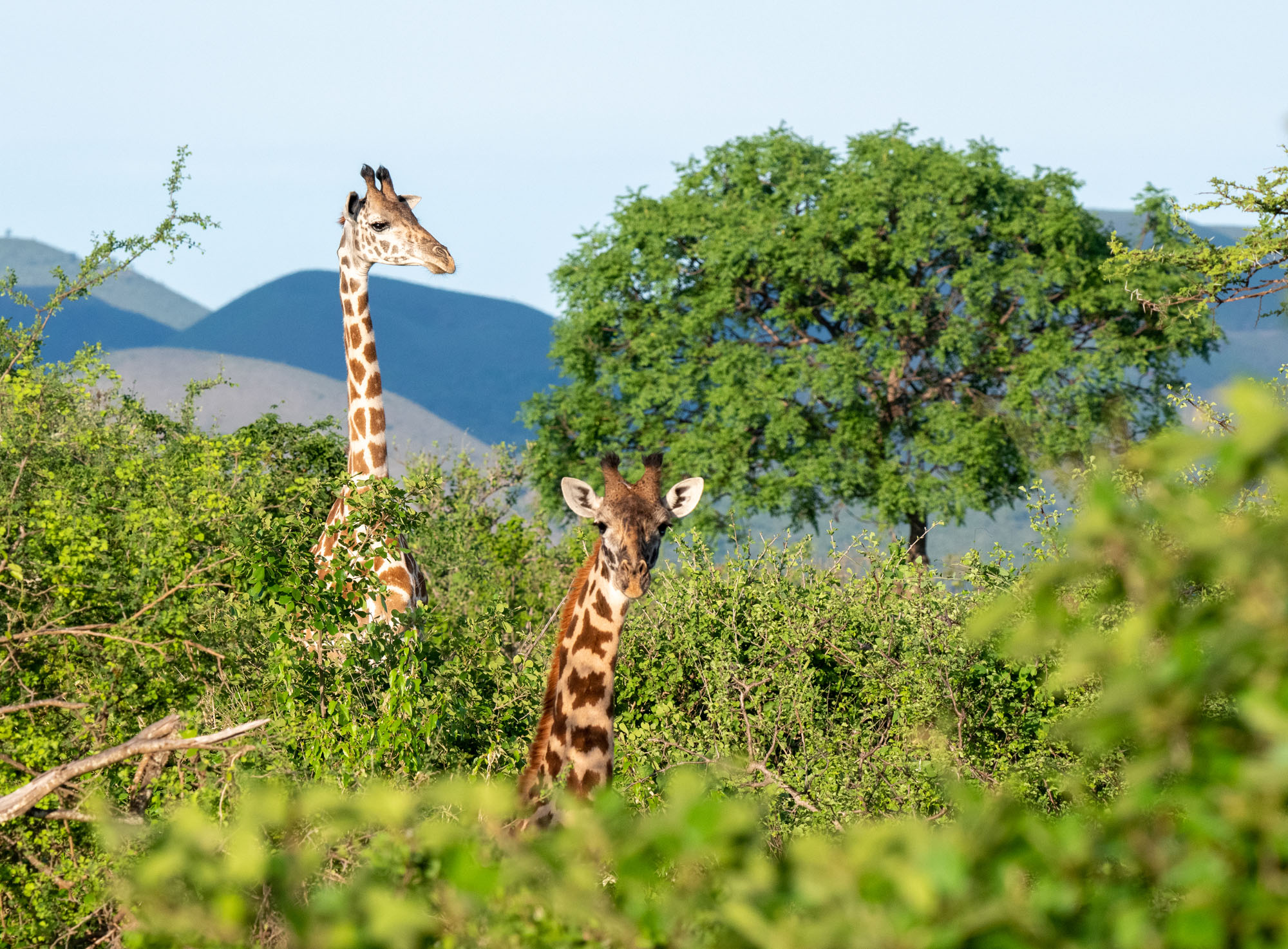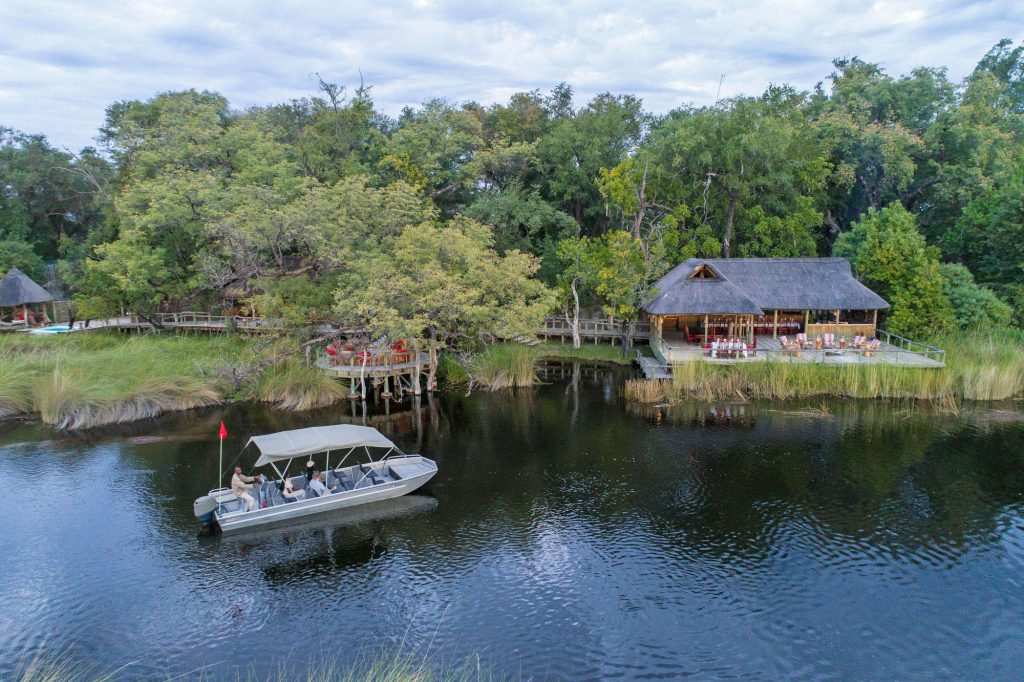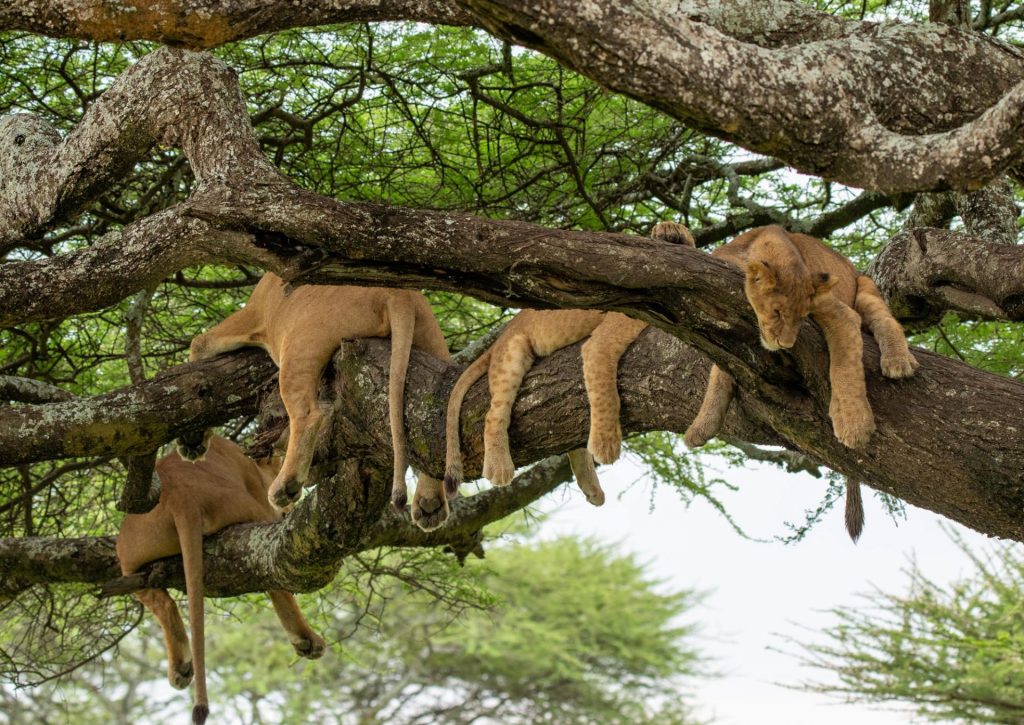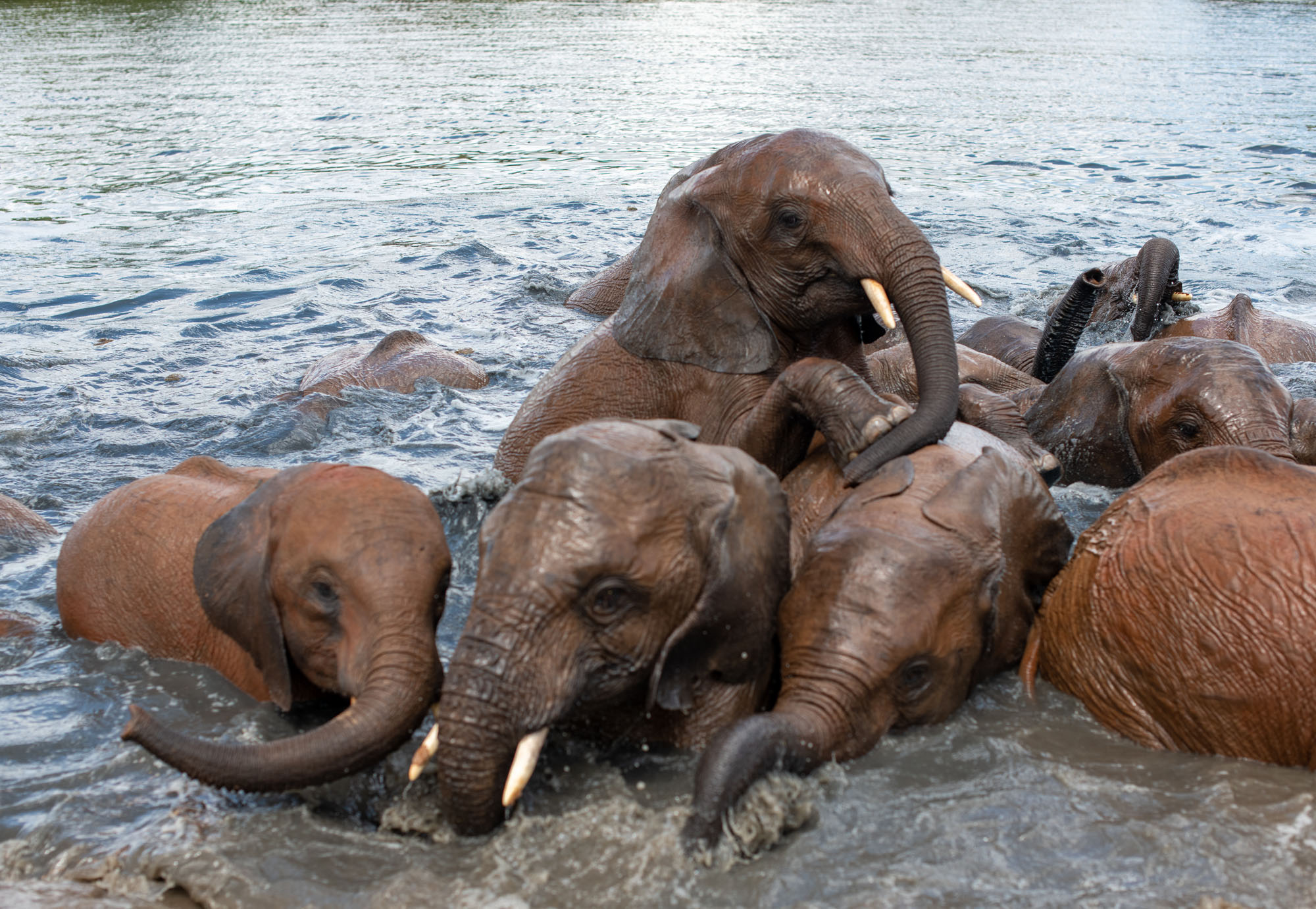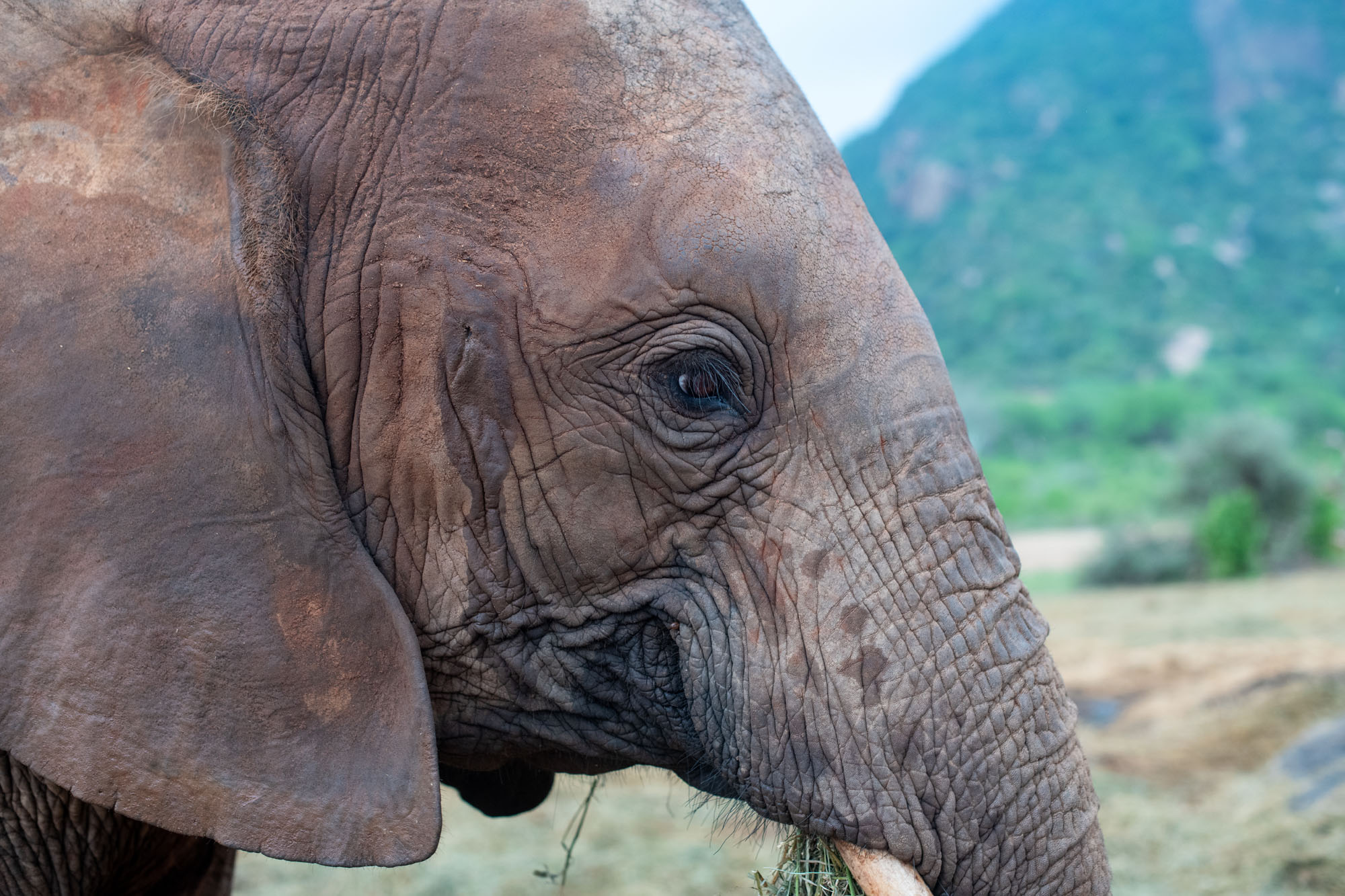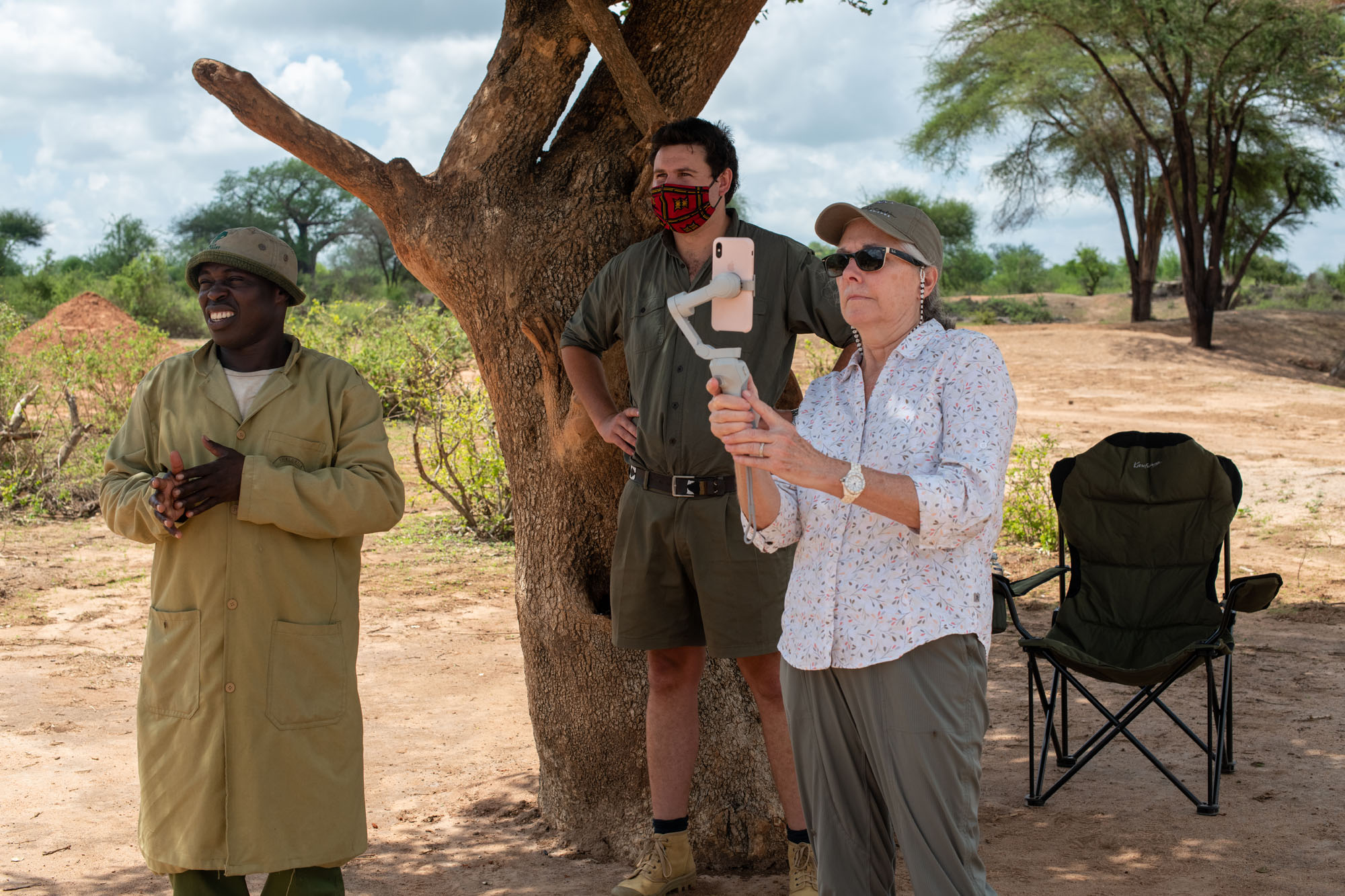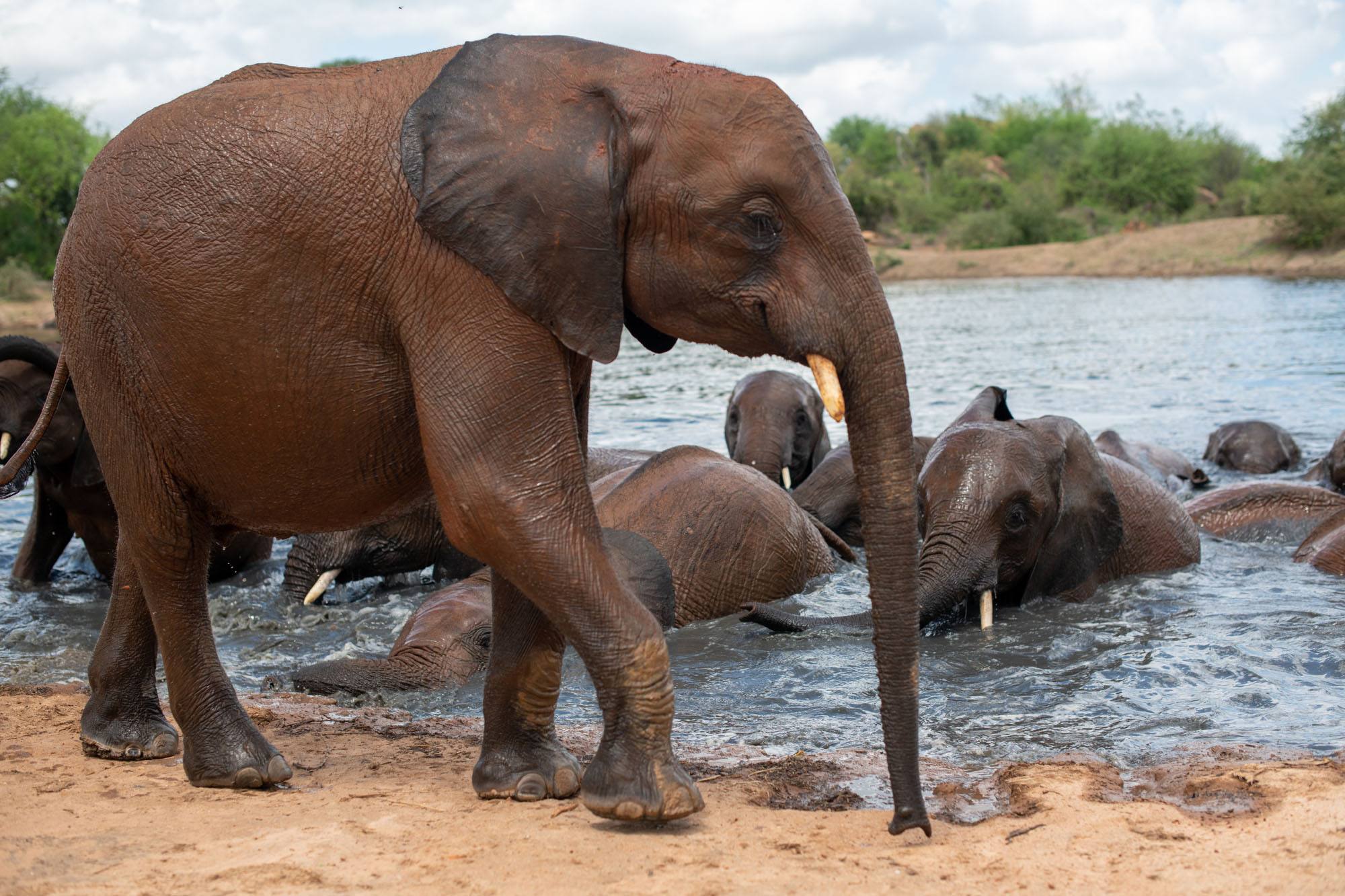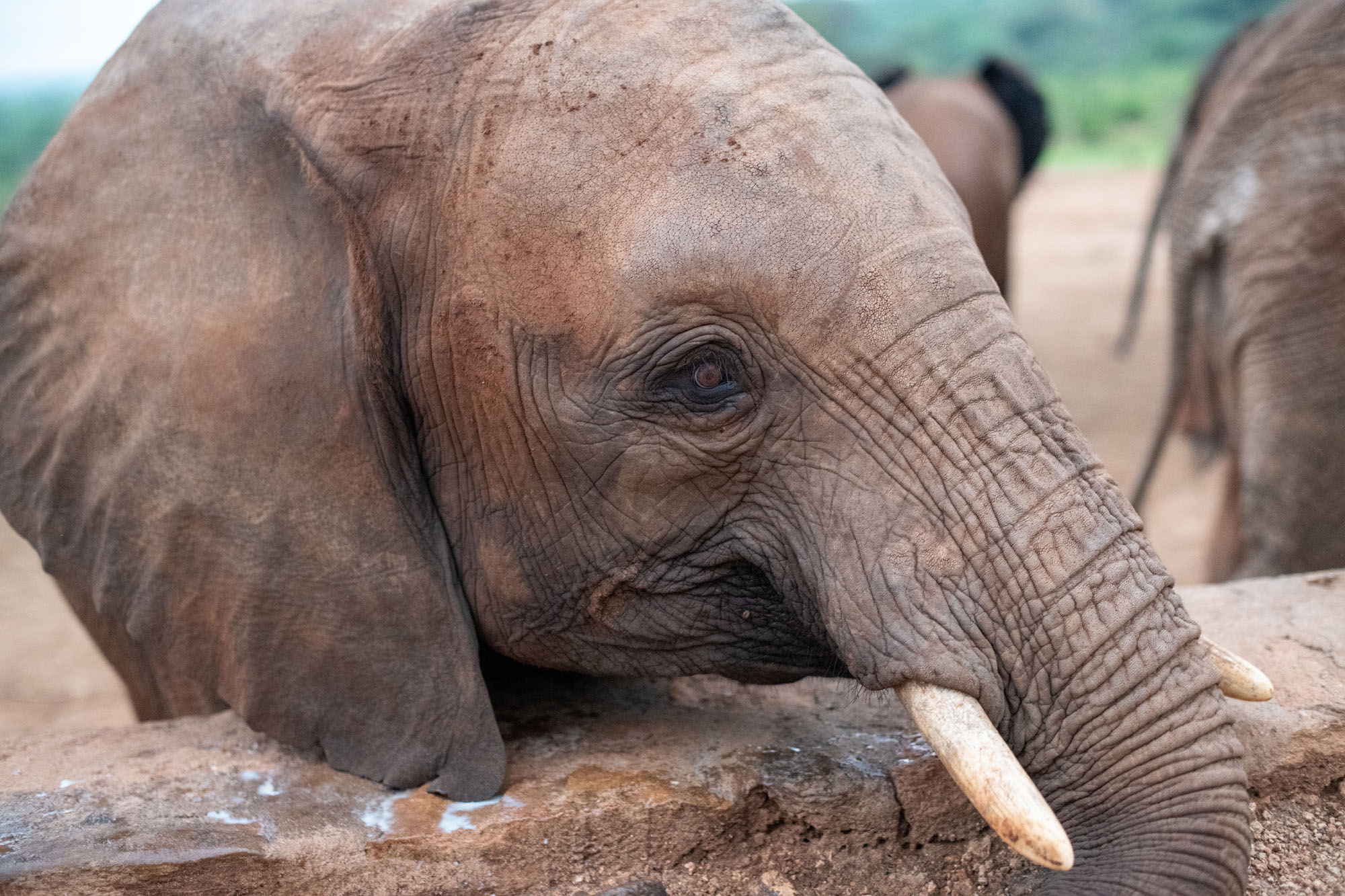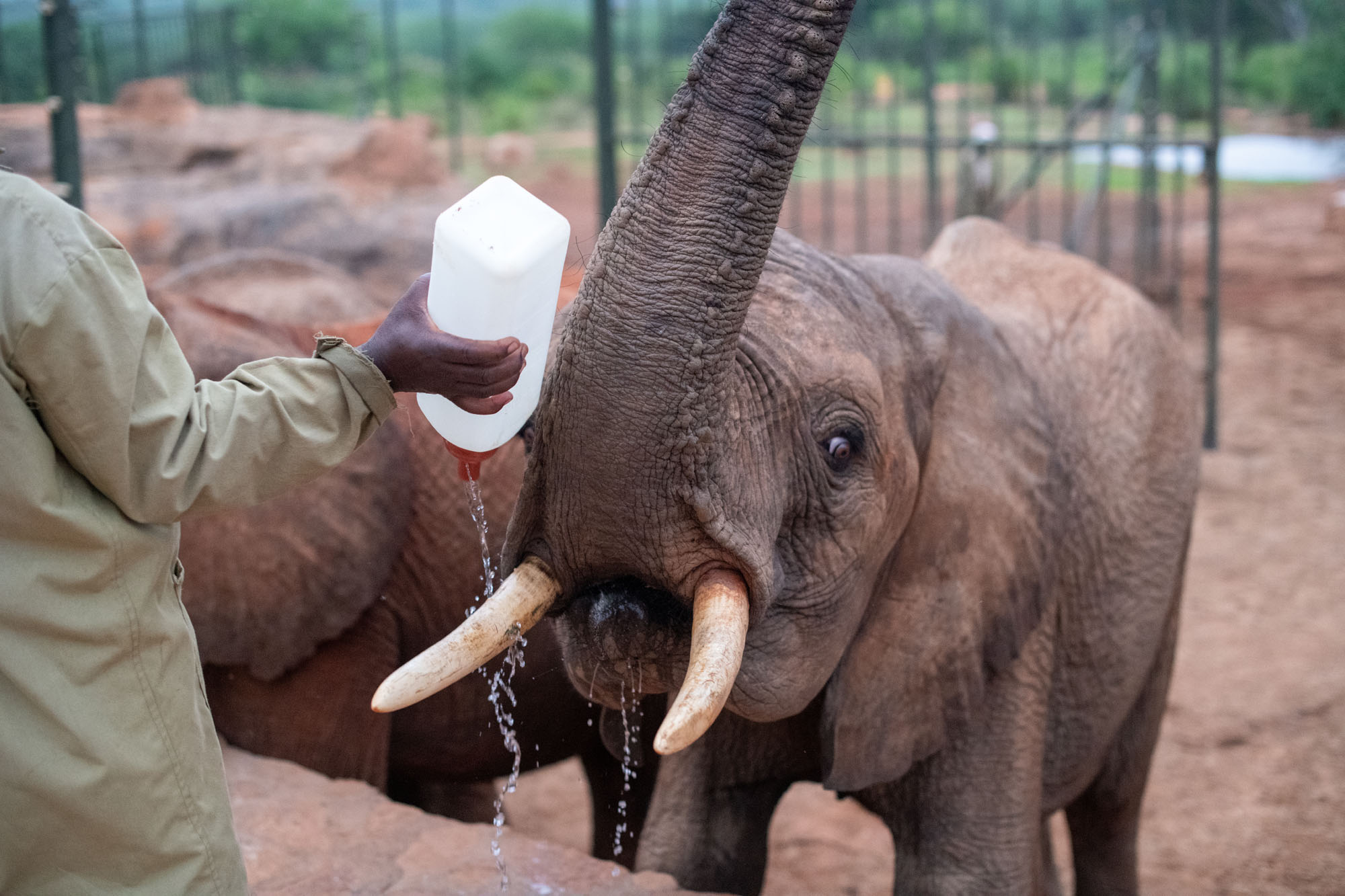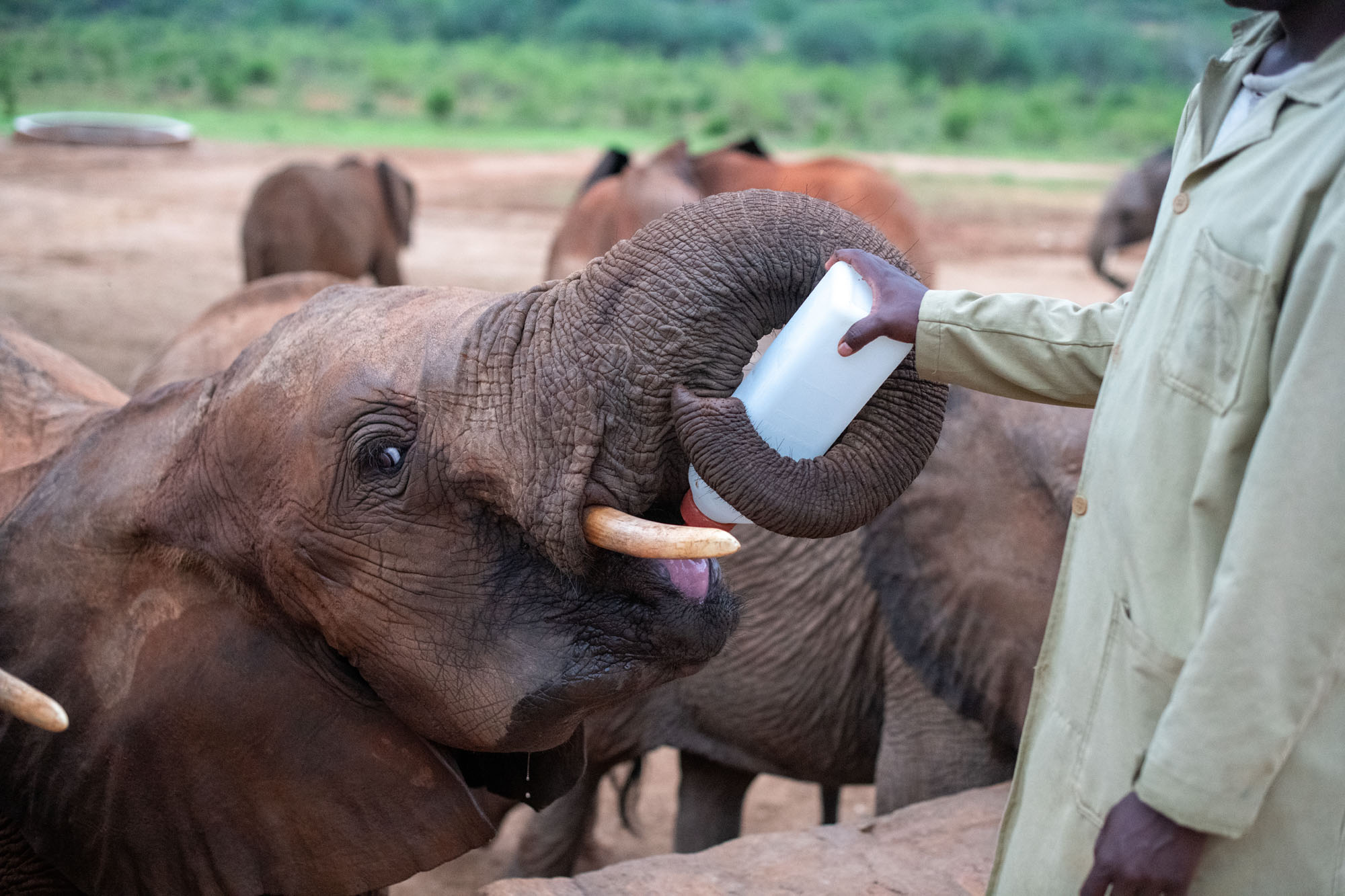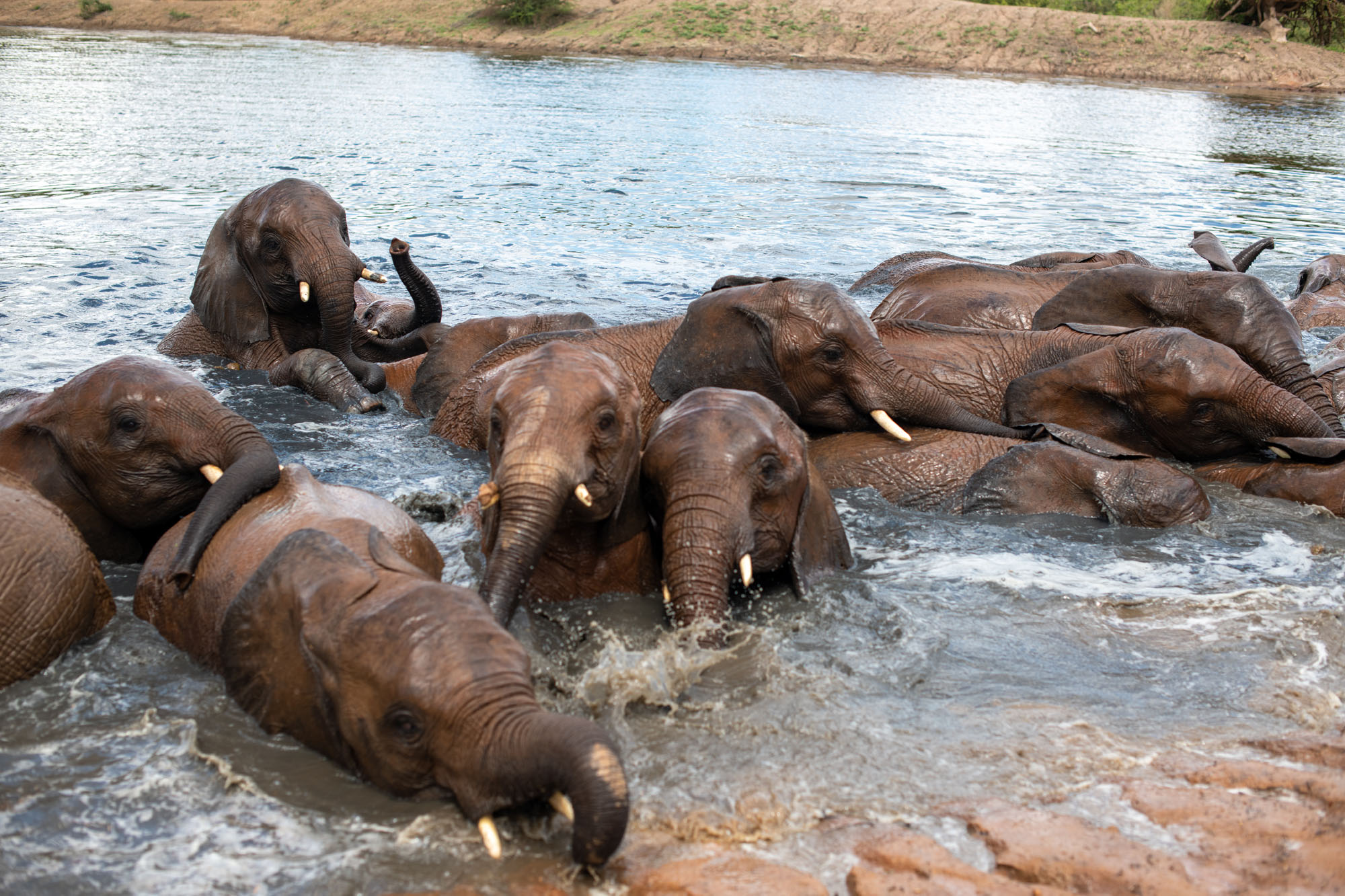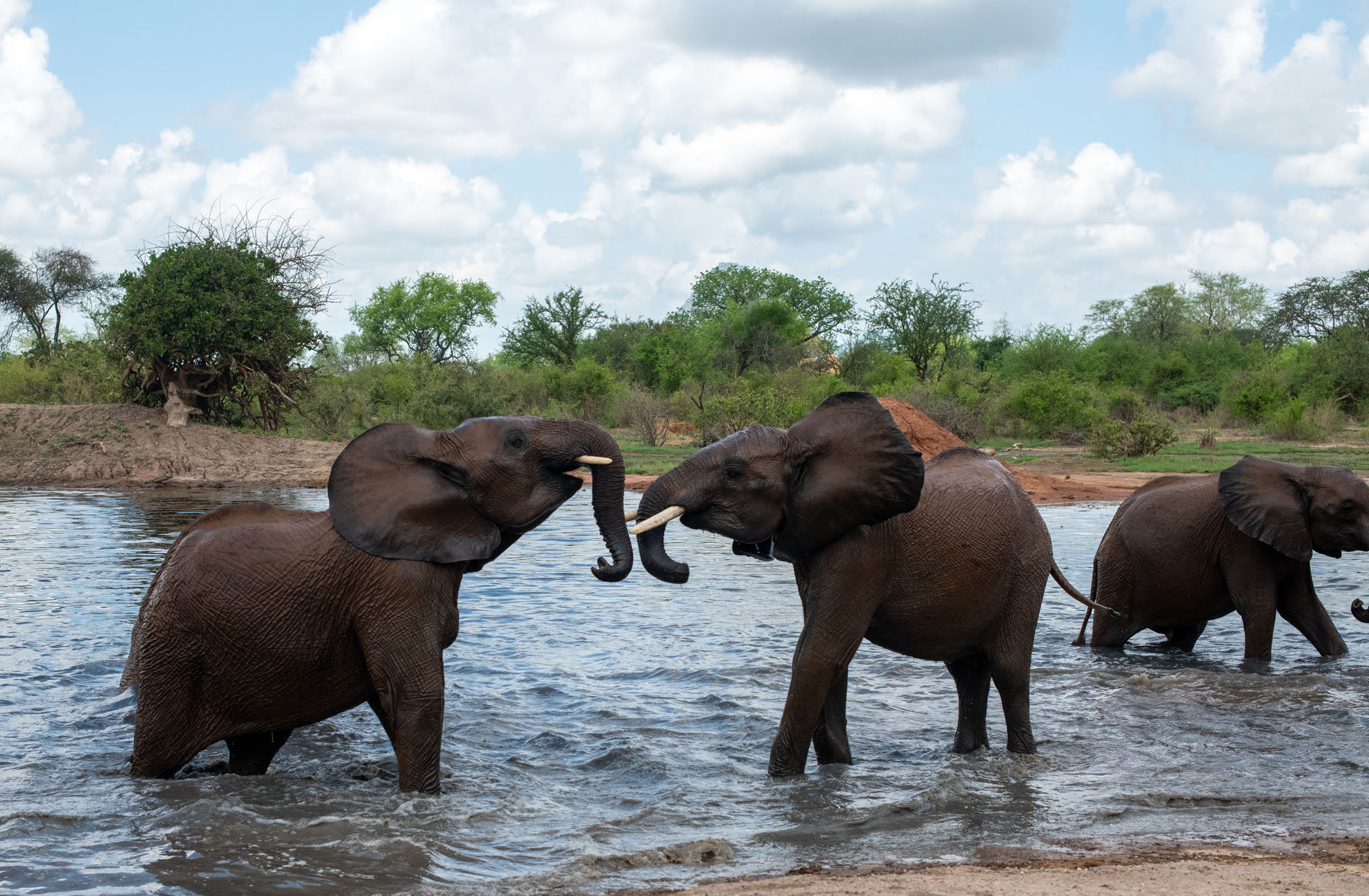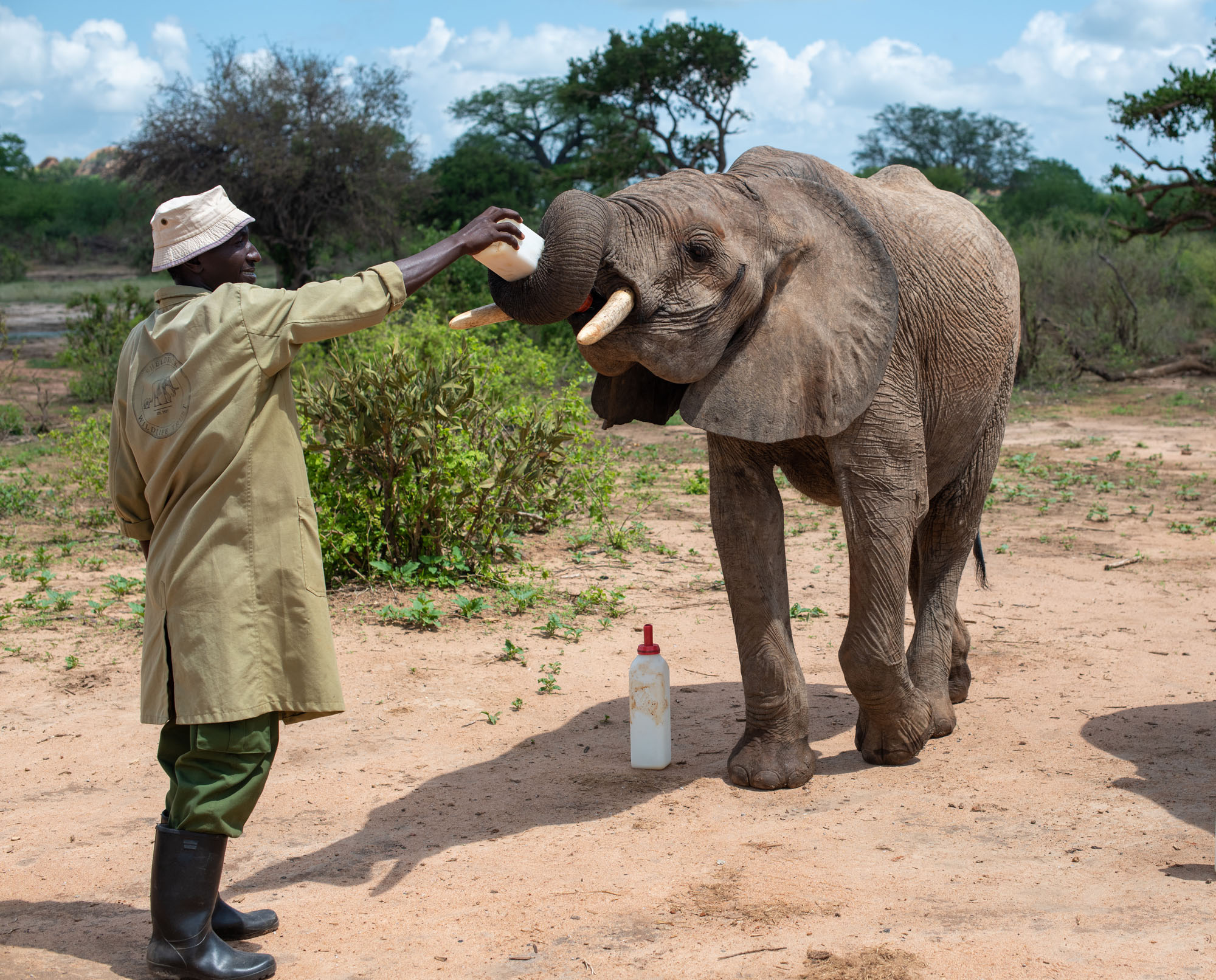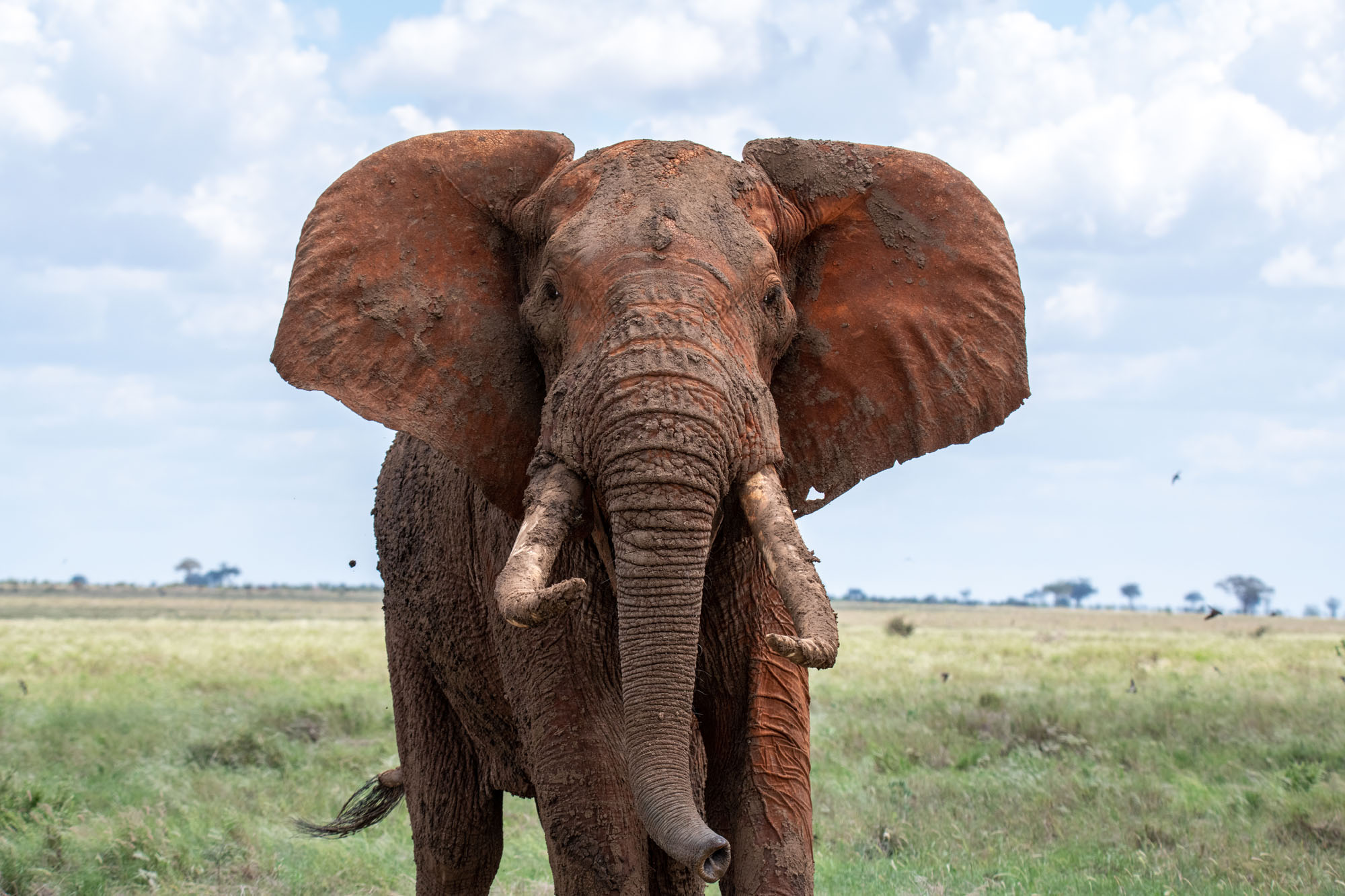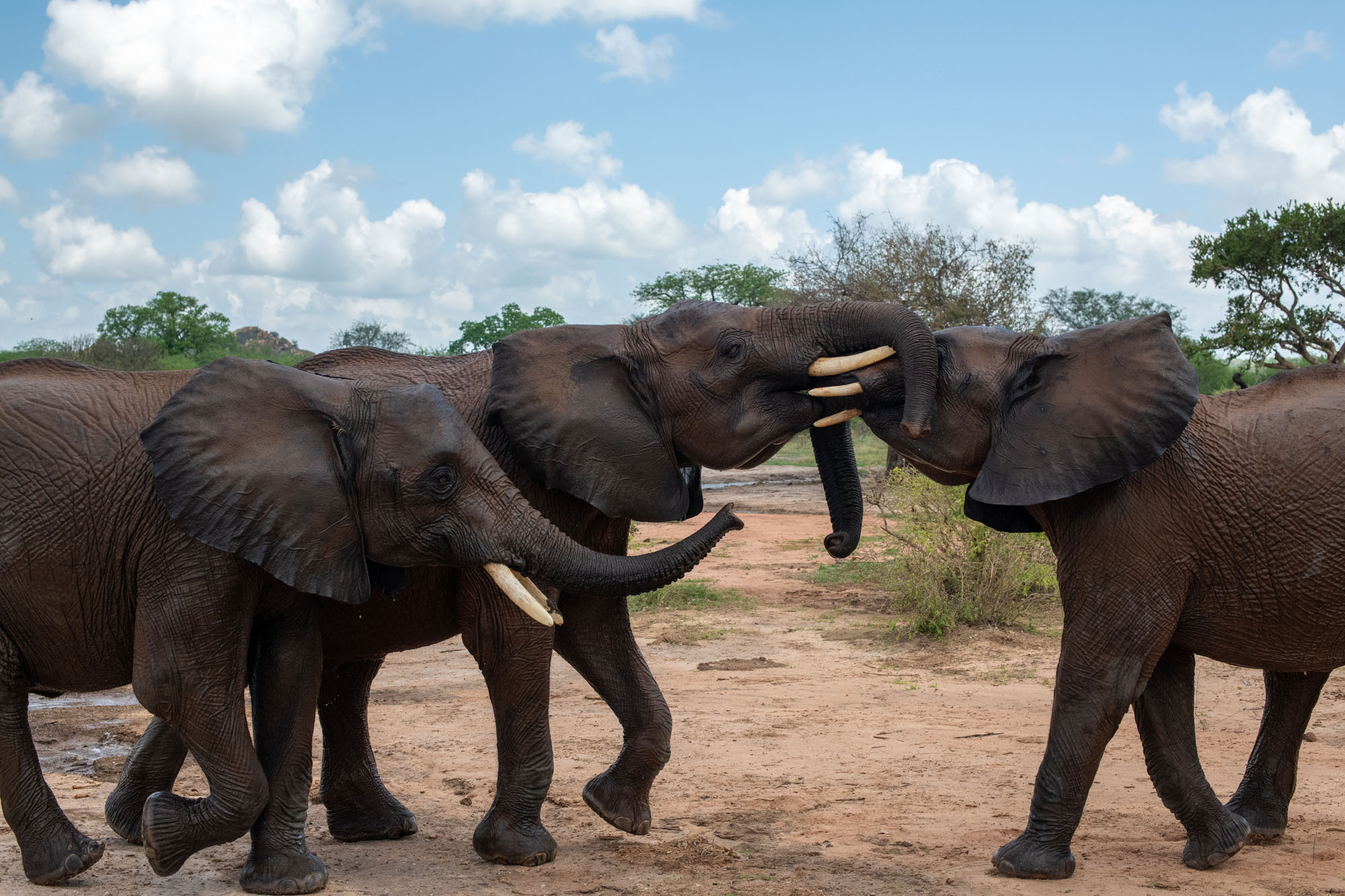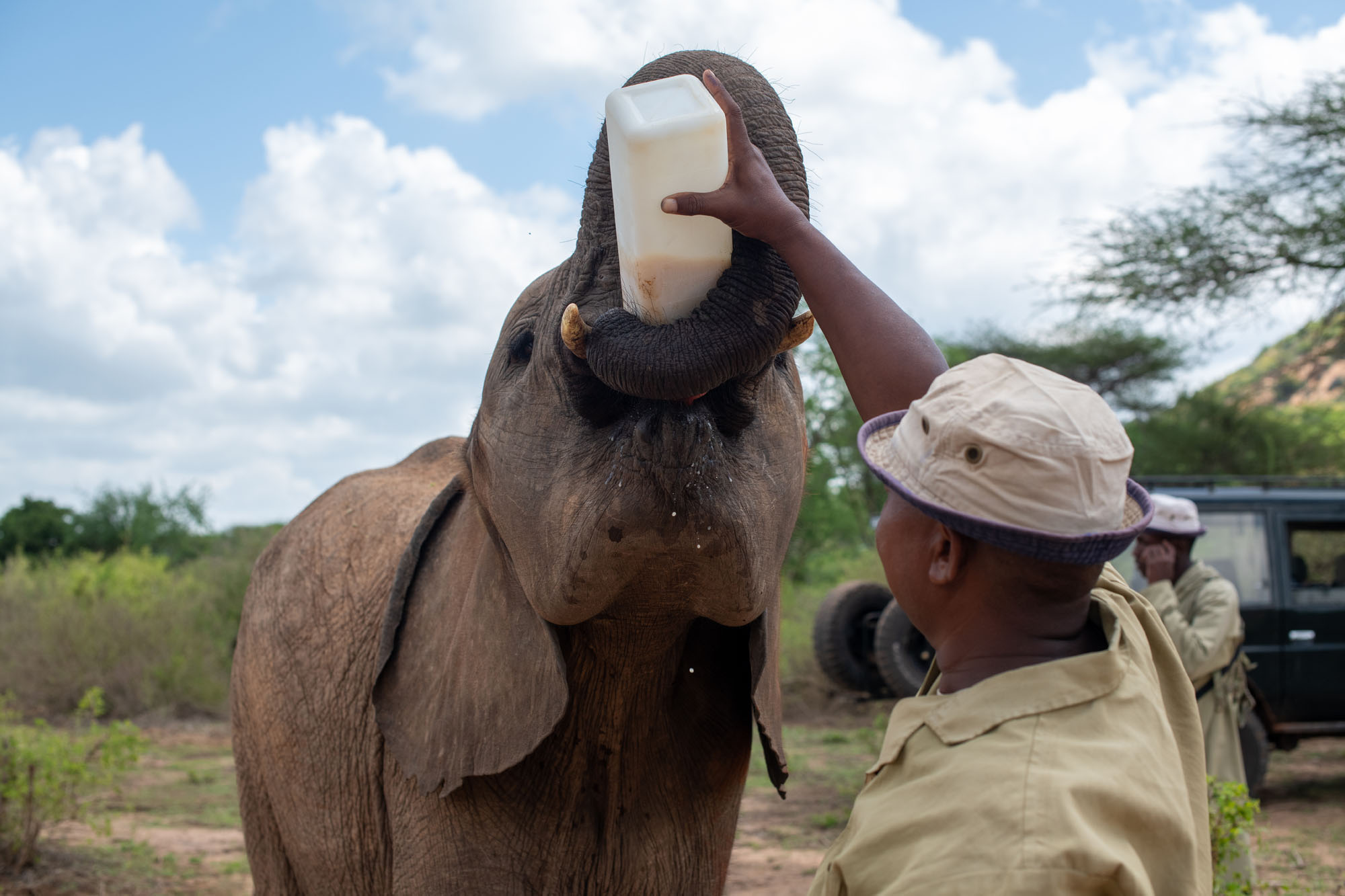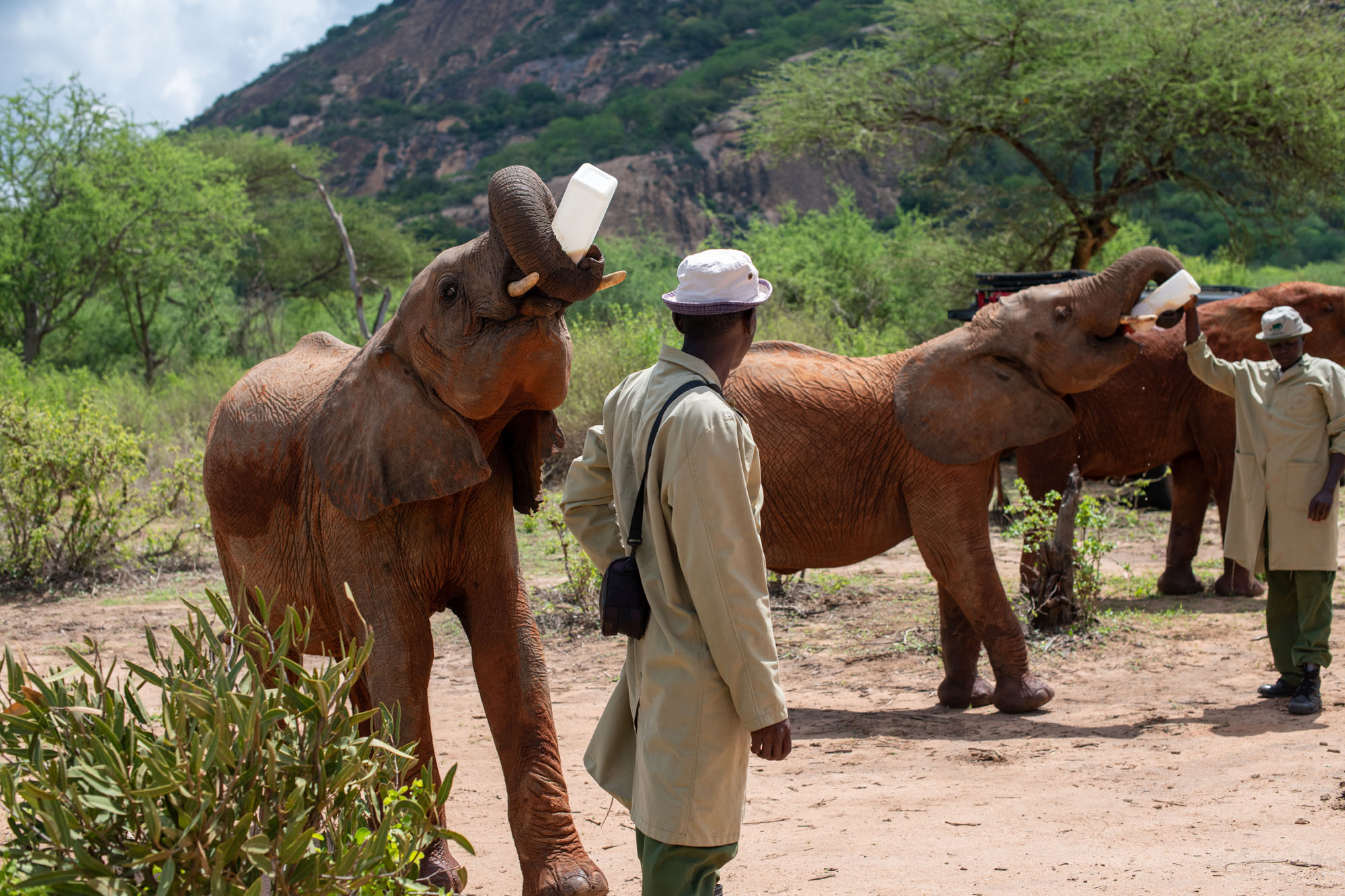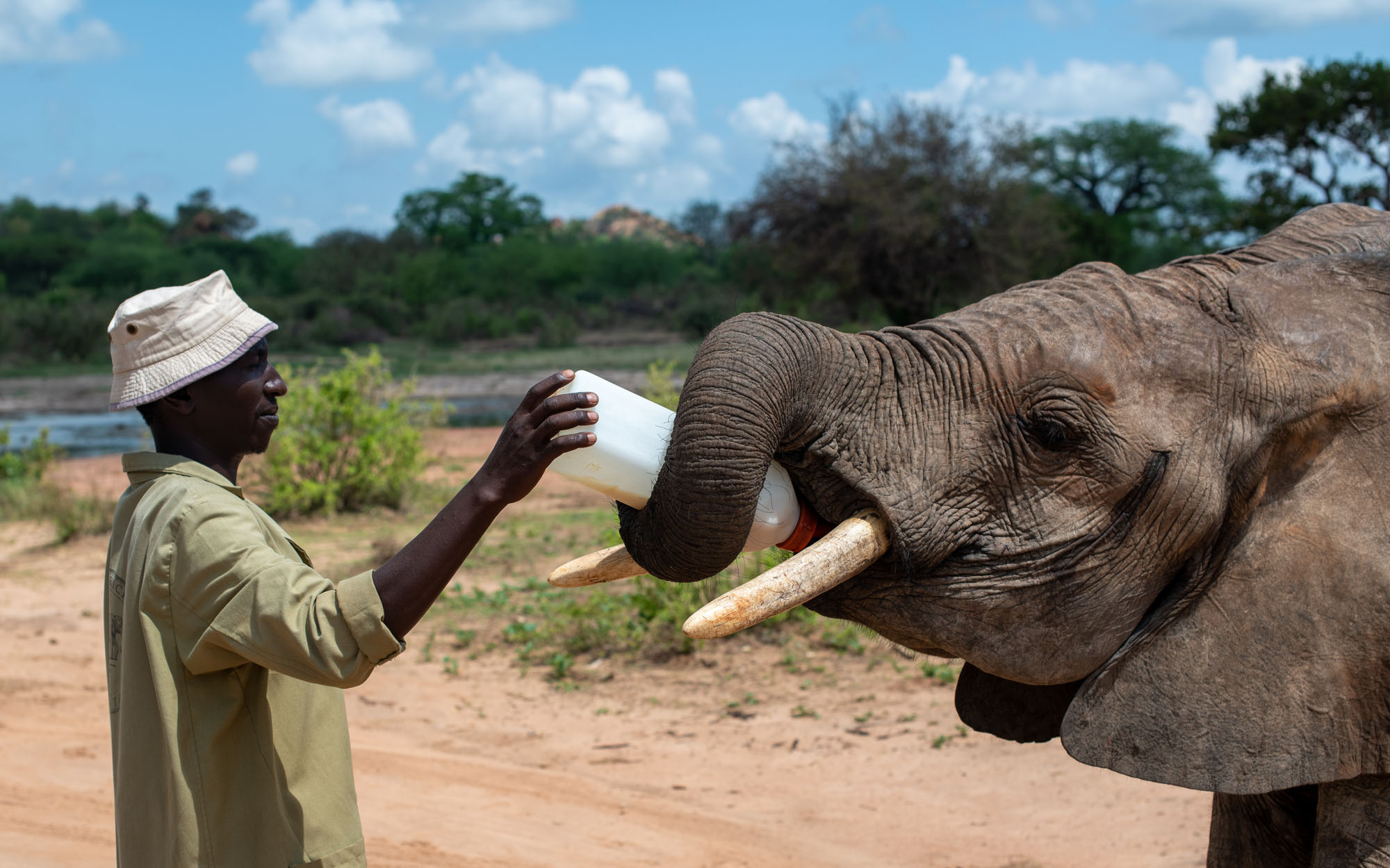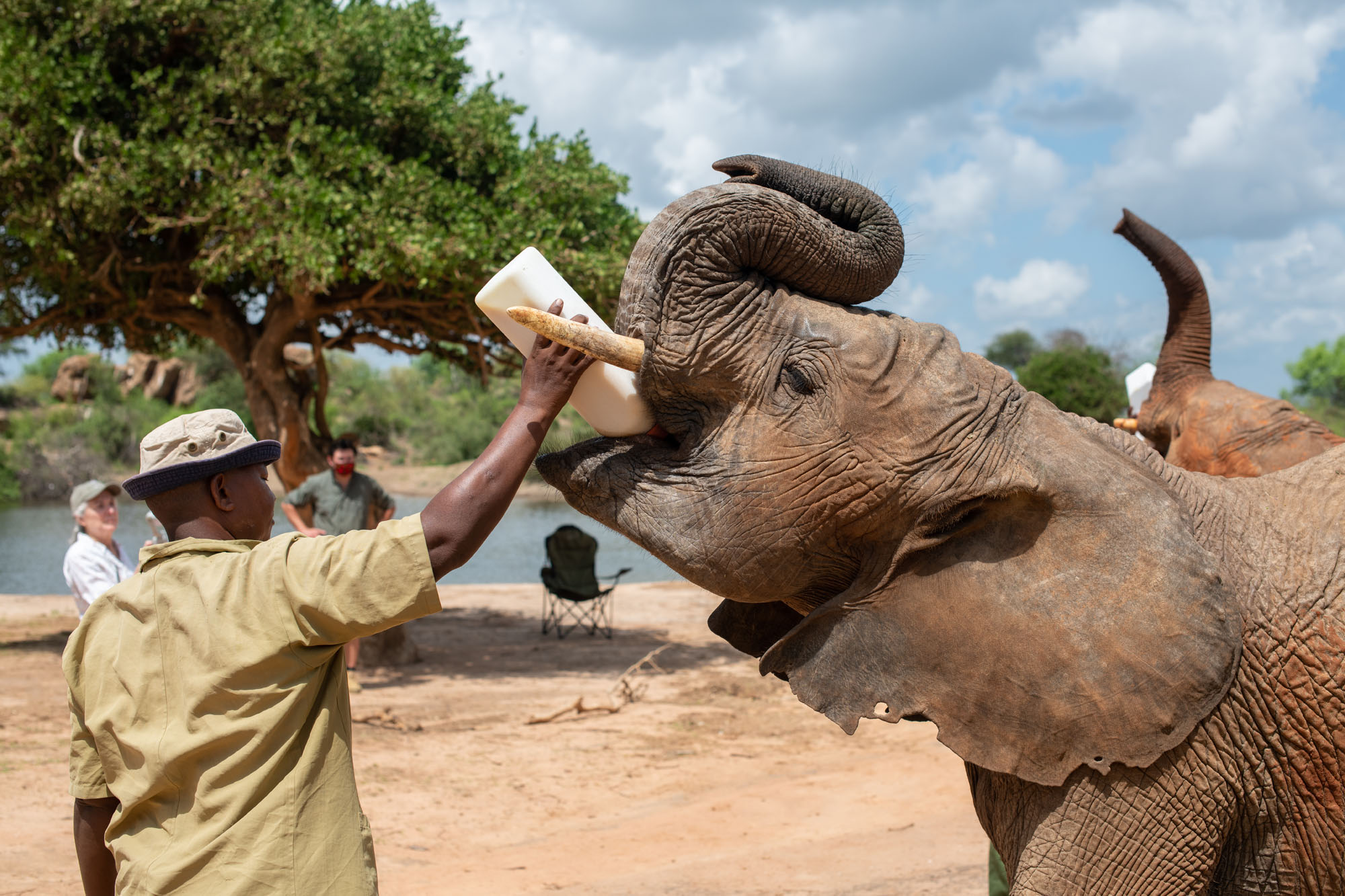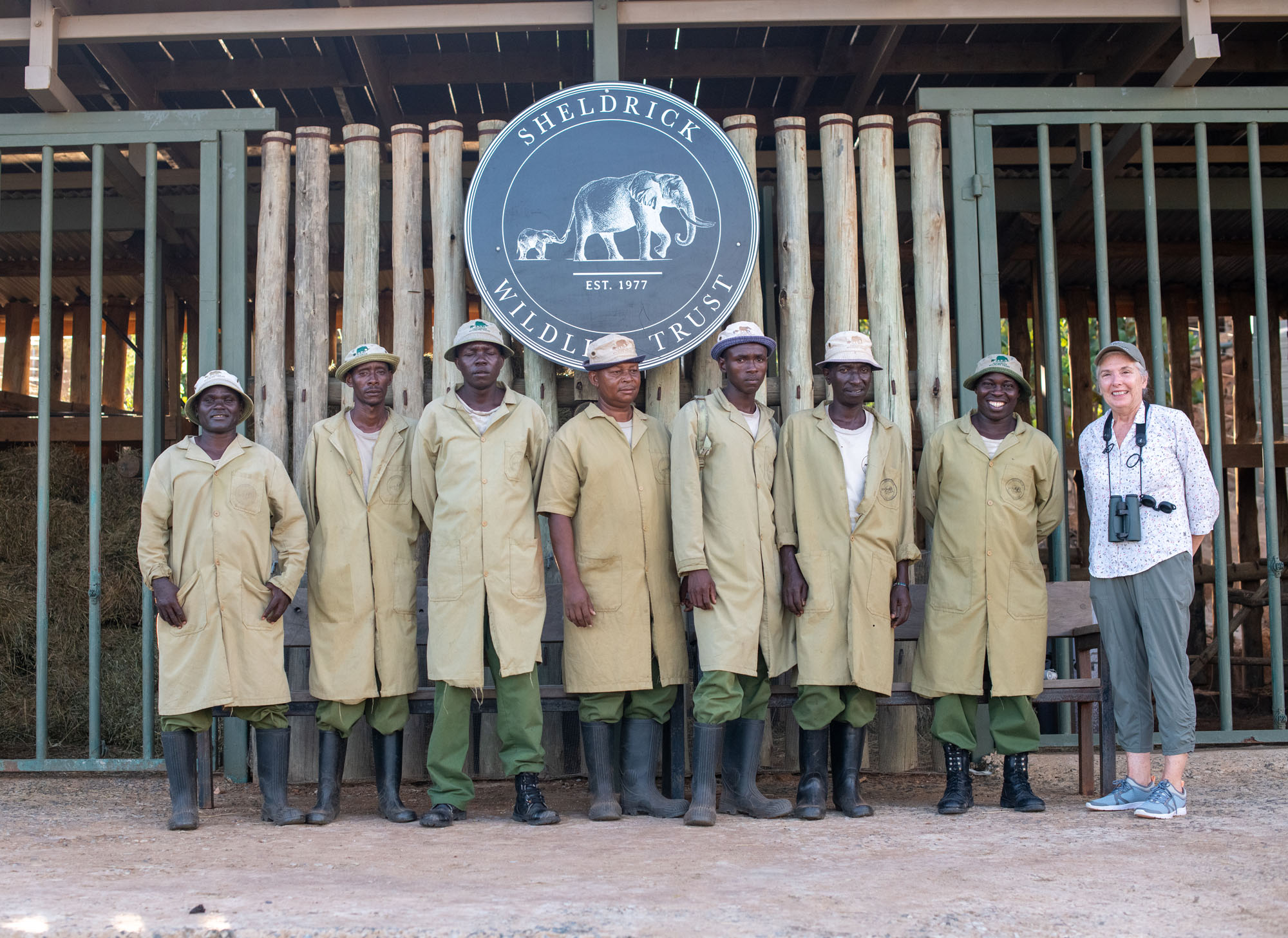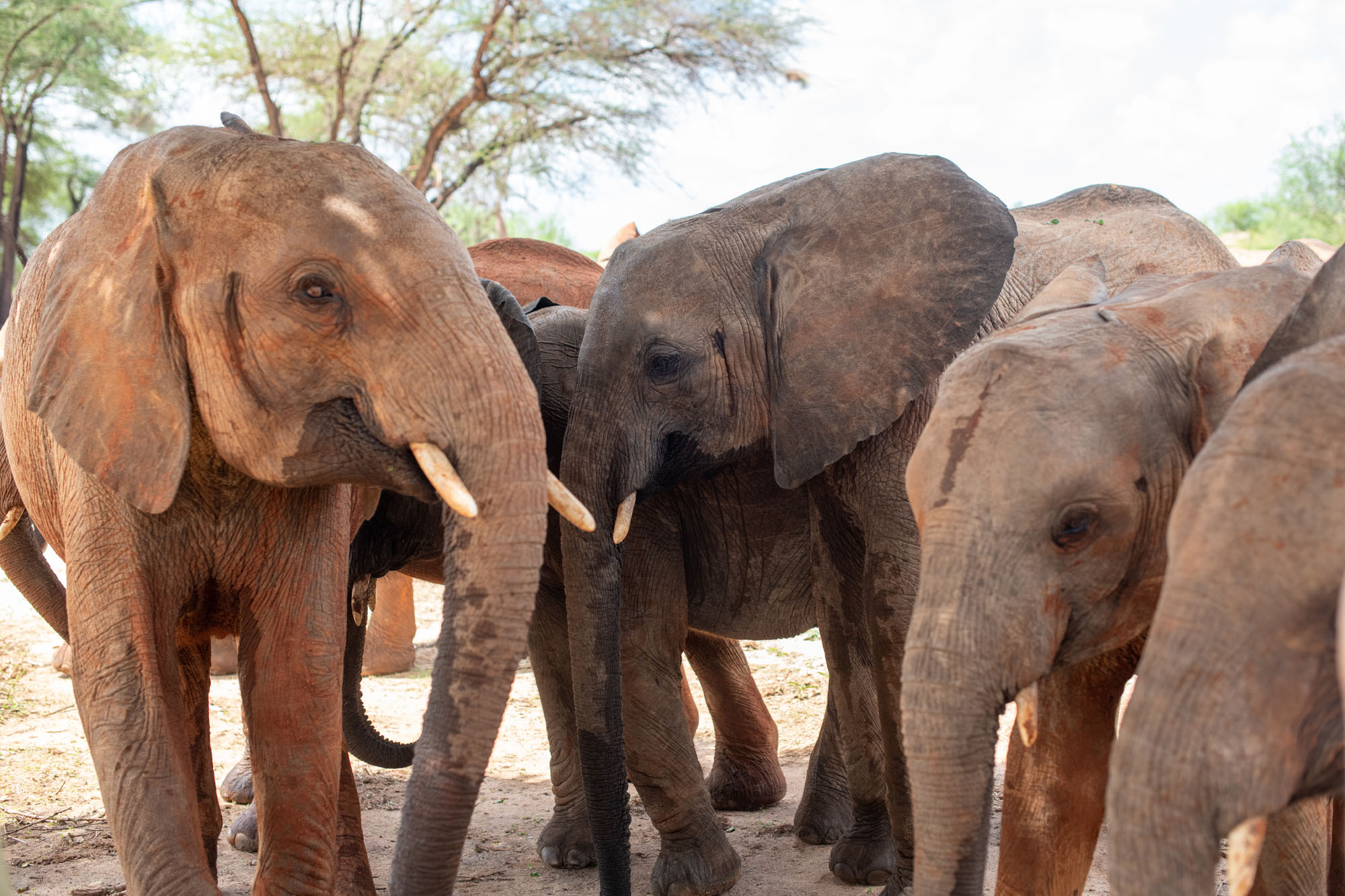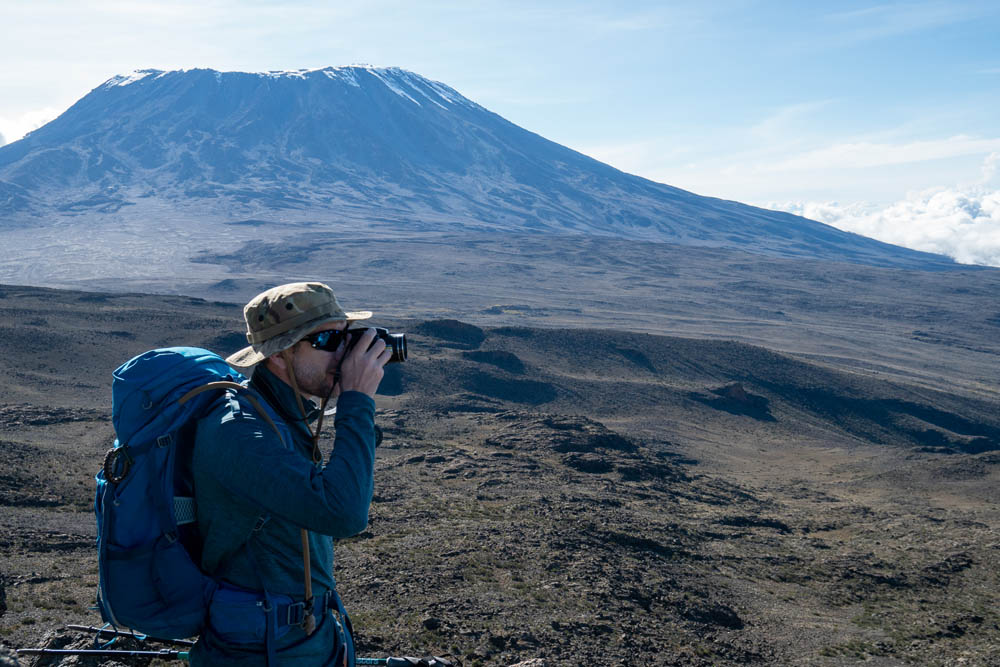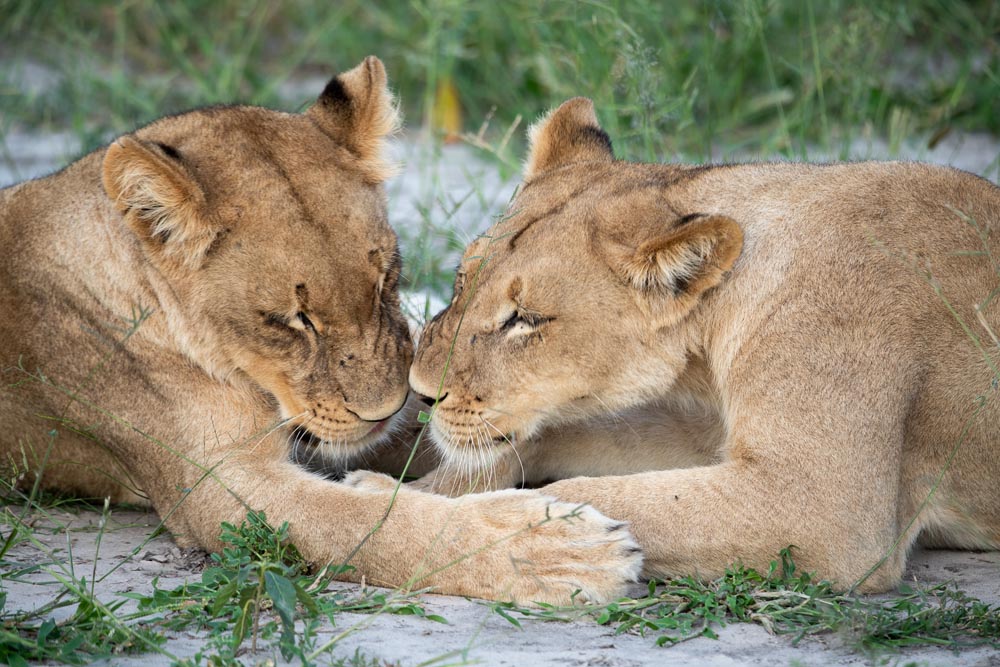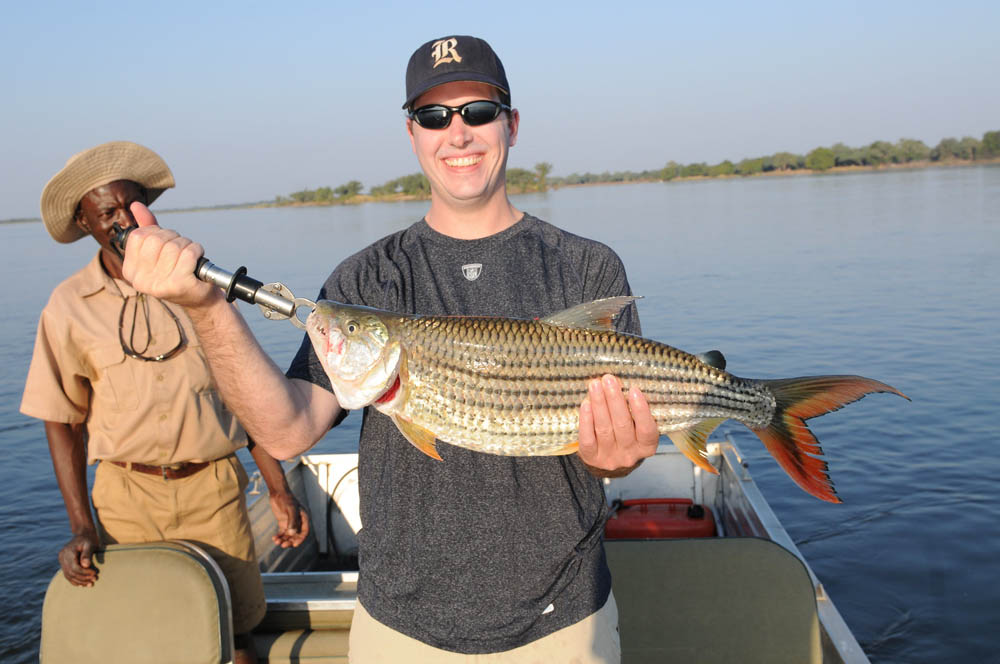On my last visit to Tsavo, I fell in love with Africa all over again. It was one thing after another, starting and ending of course, with elephants. Elephants at the waterhole just outside Kilaguni Serena Lodge, big tuskers at a water trough just inside the entrance to Tsavo East, a trio of cheeky elephants taking doum palm nuts out of our hands at Galdessa Camp on the Galana River, multiple small herds of elephants – all thirsty and hungry and dusty – around the water holes between Satao and Aruba Lodge. We could see them kicking up Tsavo’s signature red dust as they made their way through the parched landscape, headed for water. Surprisingly, given the extent and duration of the drought, the elephants were still doing well with lots of youngsters around.
We spent an absorbing couple of hours or so with the orphan elephants at the Sheldrick Voi Unit. Observing their joyful exuberance at feeding time and getting to be up close and personal with them is one of East Africa’s most enriching wildlife experiences. Positioning ourselves in partial shade under a large tree, we waited about 20 minutes or so until the first small group of orphans rushed up to their handlers, who were standing just meters away from us, each one holding a large bottle of elephant formula.
Drinking with gusto, the young elephants drained the bottles in what felt like barely a couple of minutes, their faces quickly taking on what could only be a look of utter contentment. Most of the young elephants consume two bottles of formula before they amble off to drink some water or dip into a pool, only to cover themselves with the red Tsavo dust immediately afterwards.
Small group after small group, the elephants kept coming, about 30 or so in total. By the time the youngsters had all been fed, a group of about 10 to 12 totally wild elephants had walked up to the water trough specially prepared for the orphans. Clearly used to each other’s presence, the two groups shared the water without any signs of rancor or strife.
We watched the unfolding scene for a good 30 minutes or so, with various members of our party interacting with some of the orphans. One young female elephant was particularly agreeable and she had her little trunk all over us, literally inhaling our scent and breath. On the way back to our camp at Galdessa we could not stop talking about what an amazing experience this was, and we were already thinking about returning to Ithumba or Galdessa in the future.
Also in Tsavo – at Ithumba Hill – visitors can expect an even more immersive orphan elephant experience due to the proximity of the stockade (where the young elephants sleep at night) to the safari lodge where the guests reside. It’s barely 10 minutes from one to the other so you can be around the elephants multiple times per day: when they are being bottle-fed and enjoying a mud bath in the veld, prior to going to sleep after another feeding including some hay and again early in the morning as they wake up to the prospect of another day of being pampered by the Sheldrick crew.
DRIVING FROM TSAVO WEST TO TSAVO EAST
To experience Tsavo is to experience Africa in a pure, unadulterated setting. Not too many other vehicles or people around, just a few interesting safari camps and lodges, and lots of diversity. This was my second time driving from Kilaguni in Tsavo West all the way to the Galana River in Tsavo East. Just like the first time, it was an absorbing and fascinating journey, marveling at some of the most spectacular scenery of any in Kenya. The game-viewing en route was nothing short of phenomenal with elephants and buffaloes seemingly everywhere, plenty of giraffes and several of the scarce and elusive Lesser Kudu. Other vehicles? Just one in more than three hours.
Beyond the elephants, the diversity, the scenery and its ‘old Africa’ appeal, Tsavo is where you will come across the spectacular Shetani Lava Flow and cool, beautiful Mzima Springs. We wrote about those two extraordinary places in an earlier blog post about Tsavo. On our most recent trip to Tsavo, we had the opportunity to get a closer look at the Yatta Plateau and the Galana River, two more of Tsavo’s hidden secrets.
THE YATTA PLATEAU AND THE GALANA RIVER
The Yatta Plateau is fascinatingly odd with an uncannily flat top and abrupt ‘end.’ Park yourself a few miles to the south of the plateau and it looks every bit like a lake which seemingly froze in its tracks. Which is of course exactly what it is. A massive river of igneous rock, the world’s longest lava flow, stretching almost 300 km from its origin near Ol Doinyo Sabuk, northeast of Nairobi.
At the base of the Yatta plateau runs the Galana River – the second longest river in Kenya after the Tana River. The Sheldrick Wildlife Trust’s Galdessa camps are perched on high ground, hidden in a huge grove of doum palms right on the banks of the Galana where it flows through a shallow valley with stands of trees and thick vegetation on both sides. Remarkably – considering that the area was in the throes of a severe, sustained drought at the time of our visit – the Galana was still flowing strongly, its wide expanse of clear, cool water acting as a life-sustaining magnet for a myriad of life forms. For much of its nearly 400 km (250 mile) long course, the Galana flows through a harsh, semi-arid landscape where its water is literally the difference between life and death. At the intriguing Lugard Falls, a few miles down-river from Galdessa, the Galana narrows into a series of rapids, waterfalls and weirdly shaped pools, the result of millions of years of erosion. The jaggedly eroded volcanic rock creates a scene of stunning natural beauty. It’s tempting to want to clamber around and over the rocks to get the perfect view, but visitors beware: danger lurks in the form of crocodiles and hippos.


